

Board of Directors
- History of TTRA
- Asia Pacific
- Greater Western
- Career and RFP Opportunities
- Journal of Travel Research
- Marketing Outlook Forum
- Newsletter Sign-up
- ScholarWorks@UMassAmherst
- Think Tank initiative
TTRA Partners
- 2024 Annual Conference
- 2024 Conference Agenda
- 2024 Conference Attendees
- 2024 Conference Speakers
- 2024 TTRA Awards
- Accommodations
- Hello Burlington
- News and Events
- Member Login
54th Annual International Conference
Travel and tourism research association.
Join us in Burlington, Vermont, June 11-13, 2024.

Join Our Growing Global Community
Join the world’s leading travel and tourism research association. TTRA is the leading advocate for higher standards in travel and tourism-related research, analysis, and marketing.
For over 50 years, TTRA has been the industry’s leader for go-to, evidence-based, global travel and tourism data and analysis.
Why We Do What We Do: We collaborate to advance the strategic use of research to provide leading-edge travel and tourism solutions that create a positive impact on people, places, and society.
TTRA unites the best and brightest in the travel and tourism research community.
University academics, professional practitioners, and research experts become members of TTRA to network, collaborate, learn, and ideate with colleagues from across the globe.
Travel and tourism professionals need world-class research to make informed decisions. TTRA is where they find it.
Upcoming Events
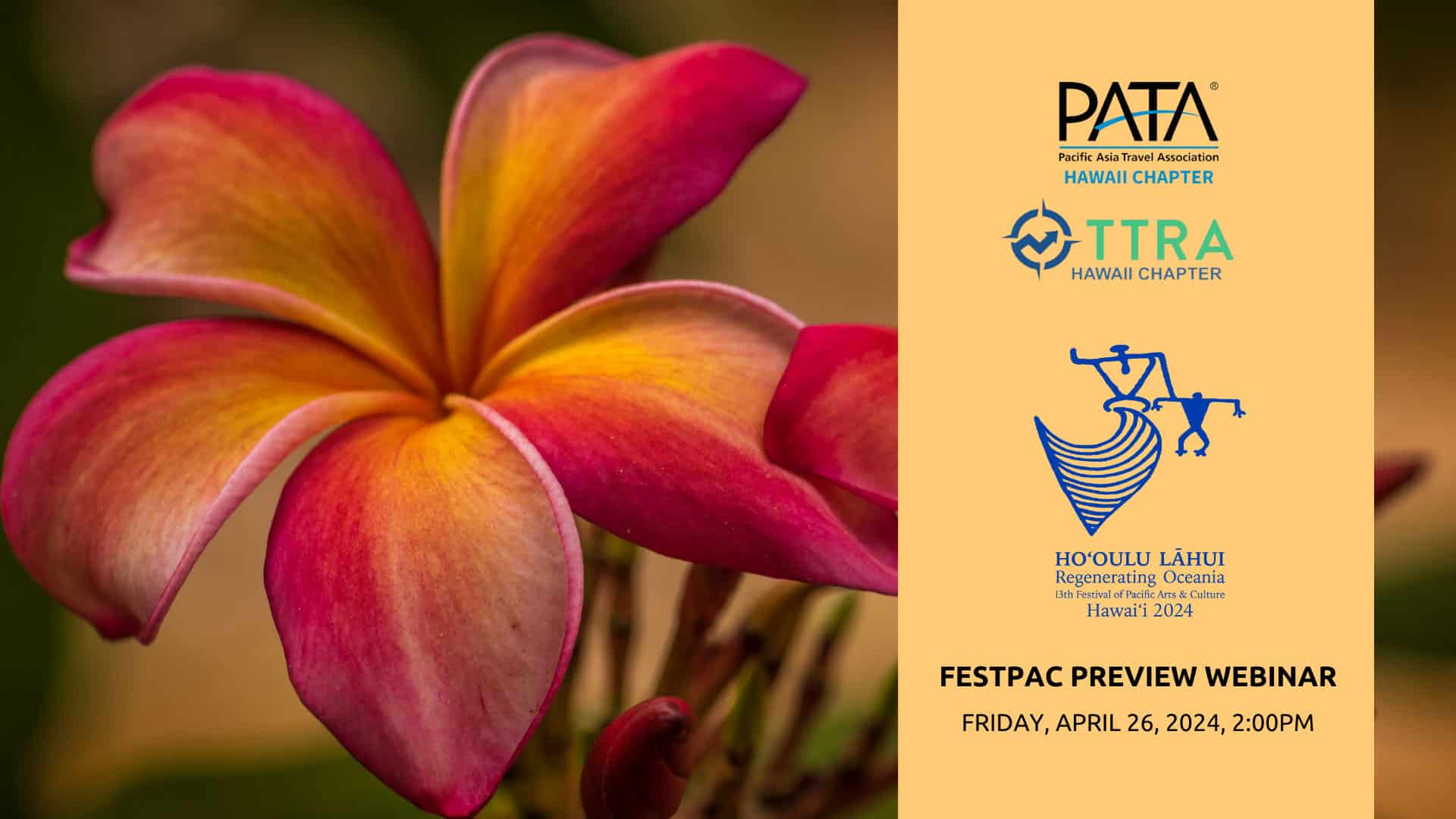
FestPAC Preview Webinar Hosted by PATA – Ha…
The 13th Festival of Pacific Arts and Culture (FestPAC) is gearing up to be an unparalleled celebration of indigenous Pacific cultures, and PATA Hawai’i […]
View Event Details
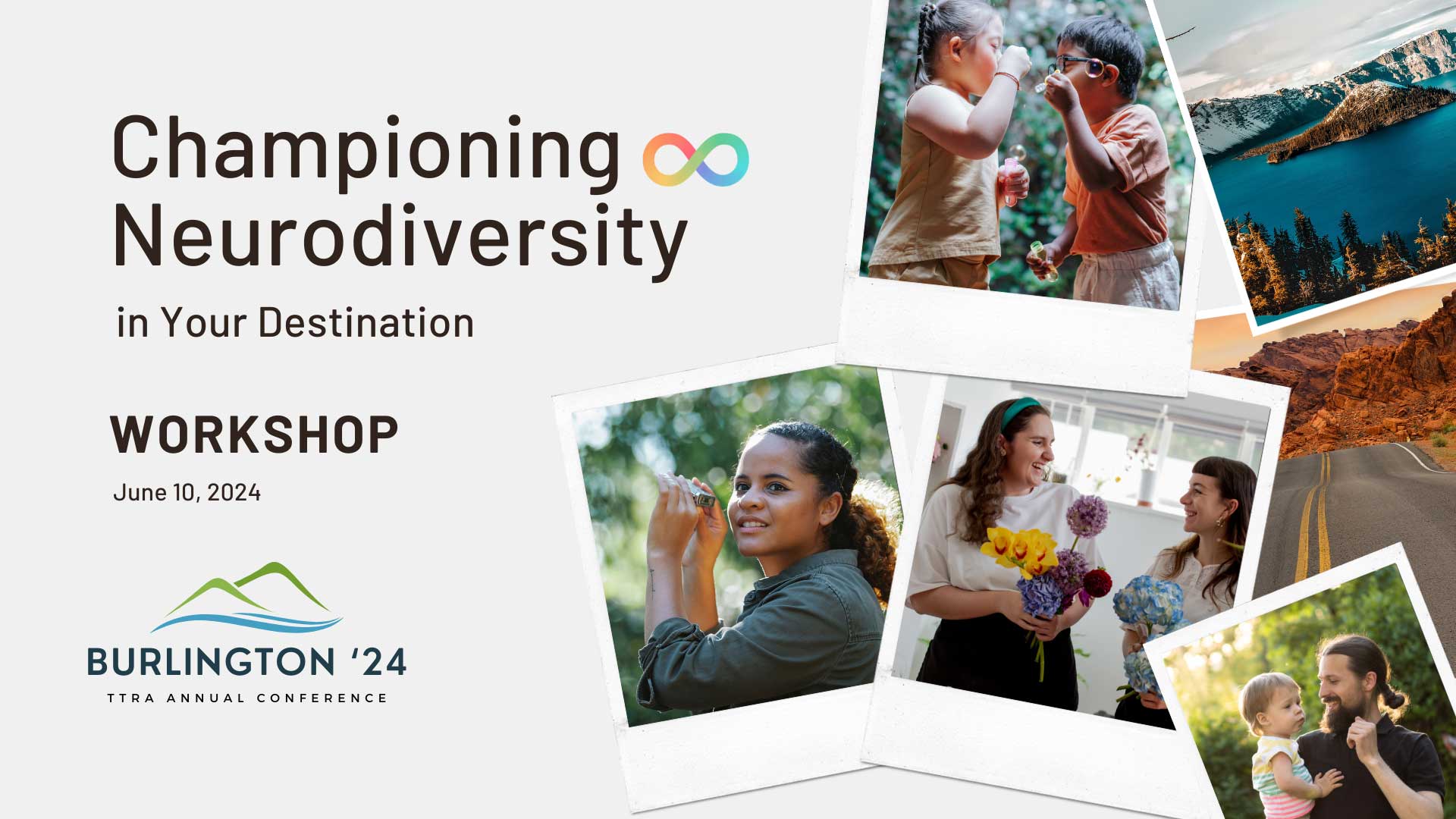
Championing Neurodiversity in Your Destinatio…
Join us in person for this interactive workshop on June 10th, in advance of the TTRA Annual Conference! Championing Neurodiversity in Your Destination Monday, […]
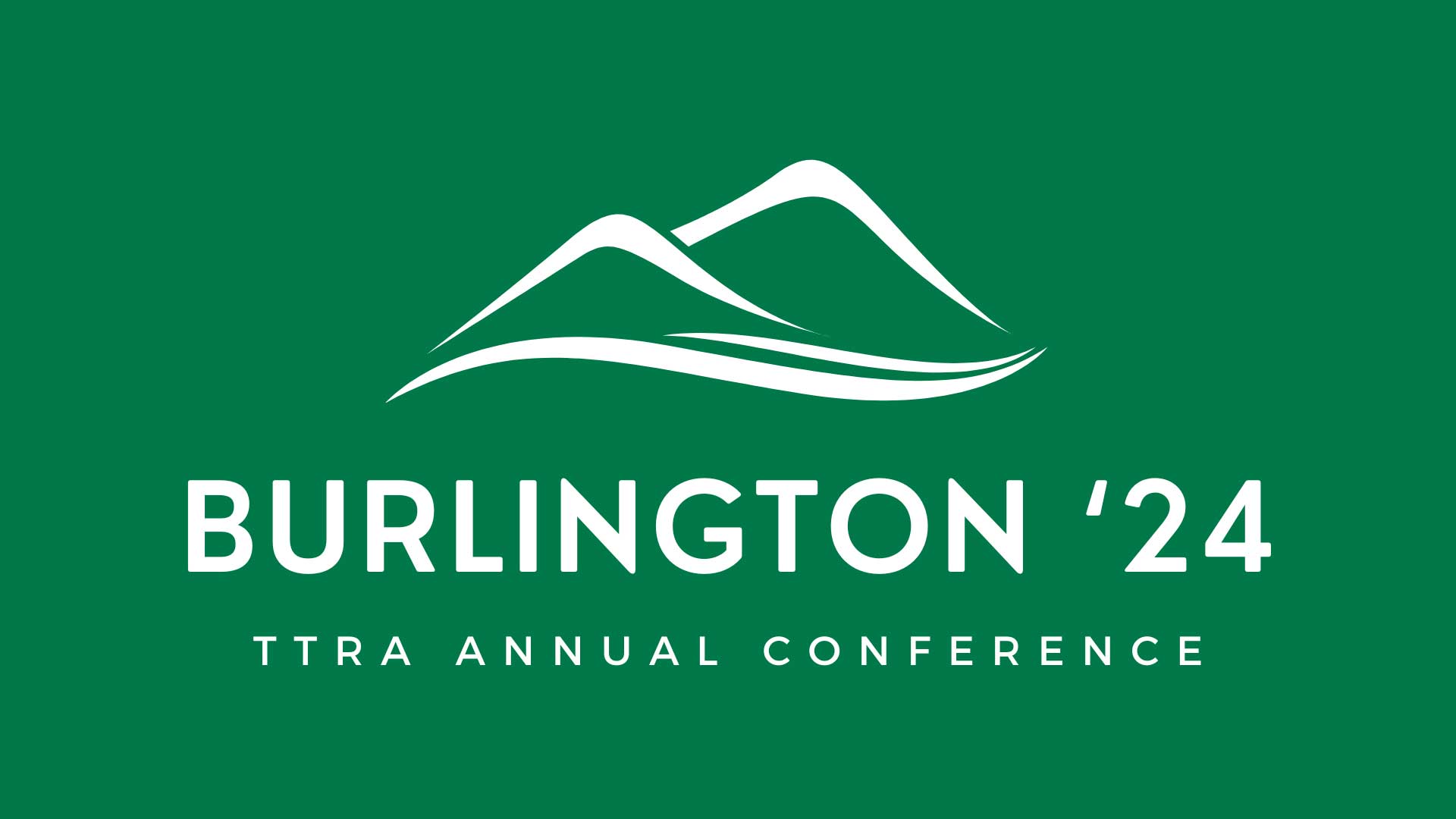
Annual Conference 2024
2024 Annual International Conference GLOBAL INSIGHTS, LOCAL STORIES: Shaping the Future Tourism Research June 11-13, 2024, Burlington, Vermont. Join us in Burlington! Discover the charm […]
Latest News
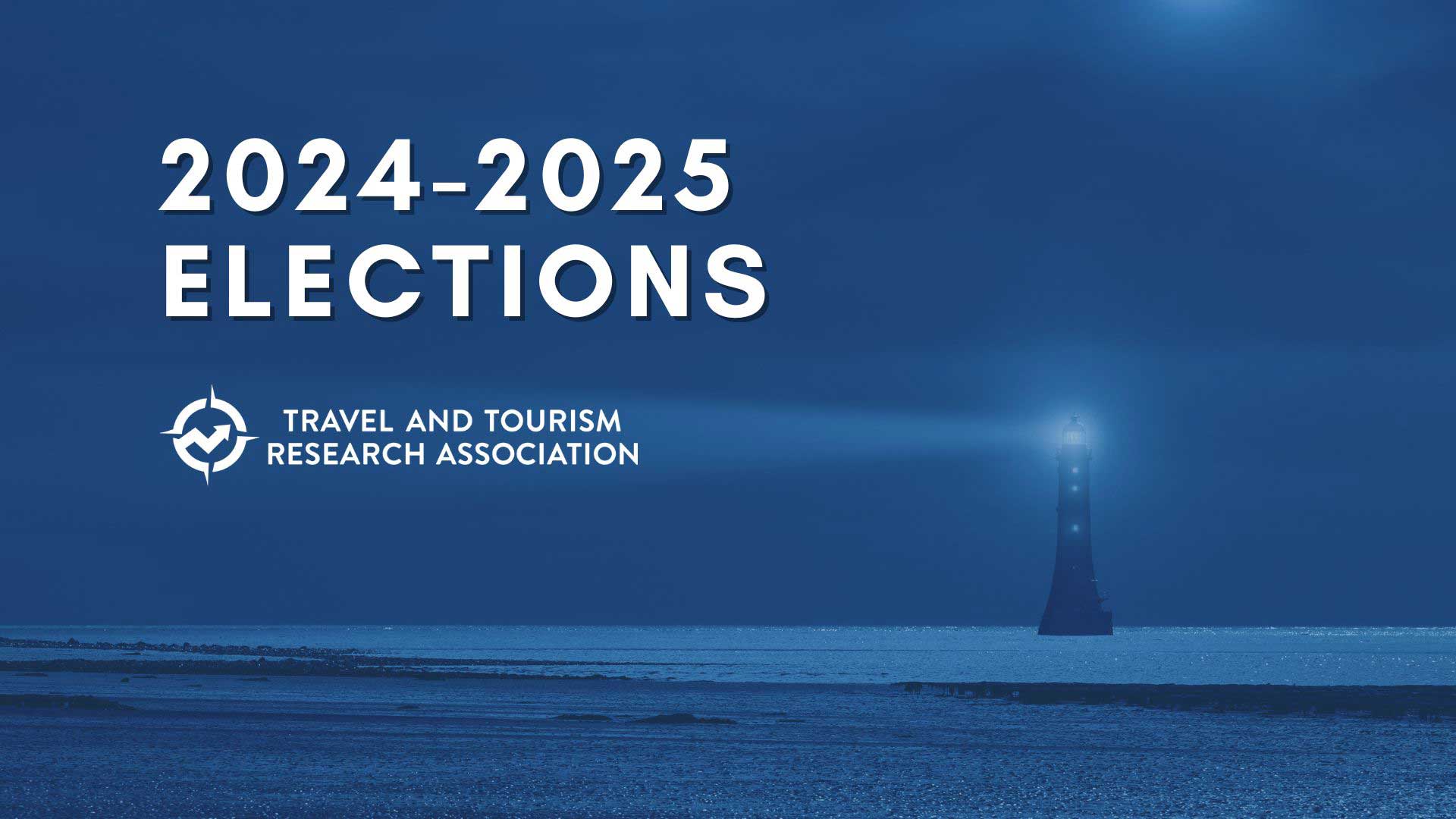
International Board of Directors Elections 20…
Attention TTRA Members As a valuable part of the Travel and Tourism Research Association (TTRA), your participation in the upcoming elections for our Officer […]
Read Full Story

New DMO Data Toolbox White Paper Series Creat…
White Paper Series Brings Together Leaders in Academia, Tourism, and Data for First Initiative from Travel and Tourism Research Association Think Tank – DMO […]
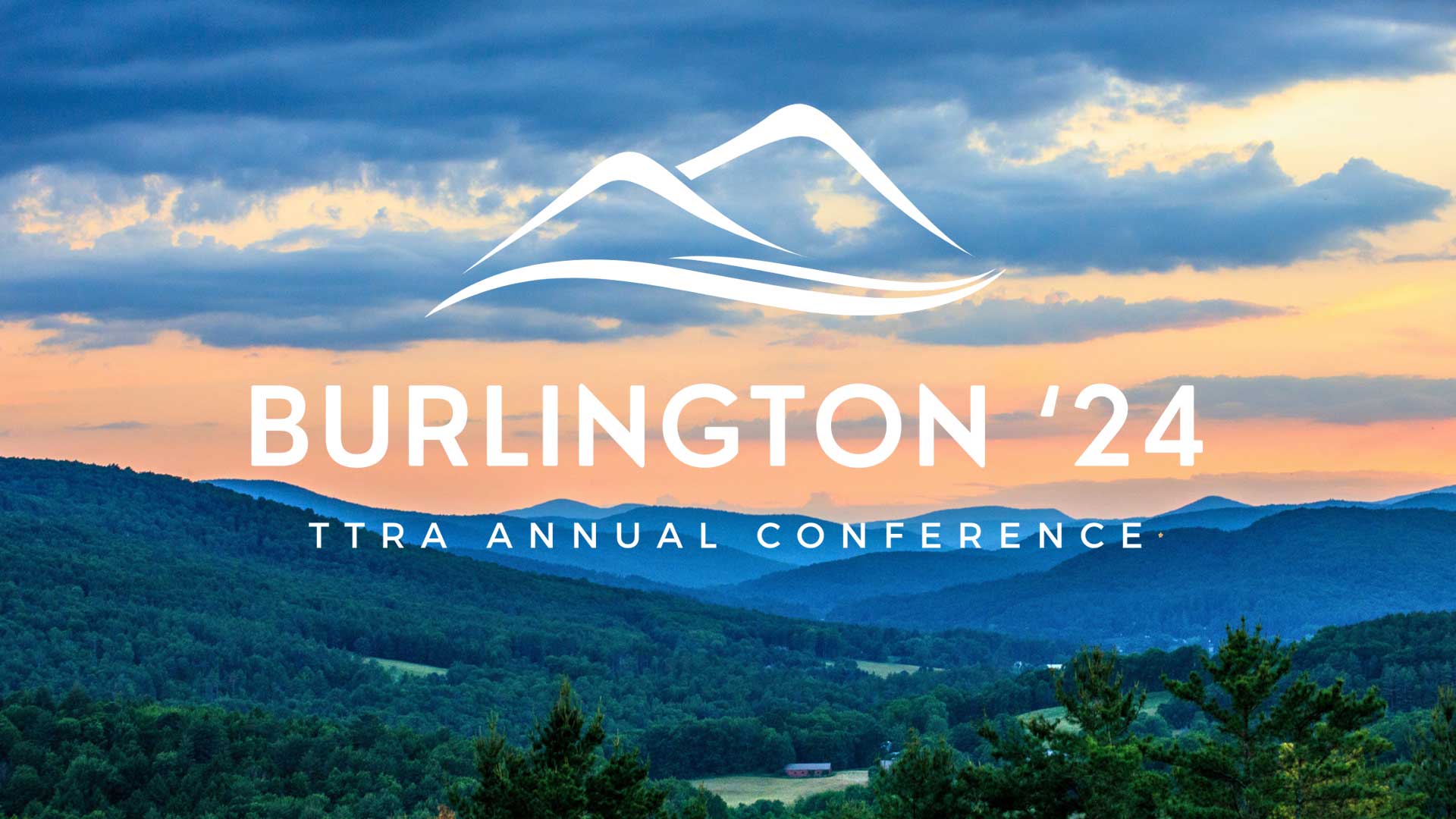
Global Insights, Local Stories: TTRA 2024
Join us in Burlington! This June, the beautiful city of Burlington, Vermont, becomes the nexus of tourism research as the Travel and Tourism Research […]
TTRA Membership Benefits
Awards & Recognition
TTRA is proud to recognize and honor significant accomplishments, exemplary leadership, and commitment to the travel and tourism research community.
Build Connections
TTRA members build connections with a diverse network of industry leaders and gain valuable insights and knowledge through collaborations and partnerships.
TTRA provides members with access to the latest industry trends, research, training opportunities, and mentorship programs to help further their professional development.
TTRA Member Testimonials
"The colleagues and friends I have made along the way are irreplaceable. I would encourage anyone that is new in the travel industry to join TTRA as quickly as possible."

Visit Knoxville
“TTRA membership has its privileges. TTRA is not just an association in which I am a privileged member, it is a community in which I am a privileged resident.”
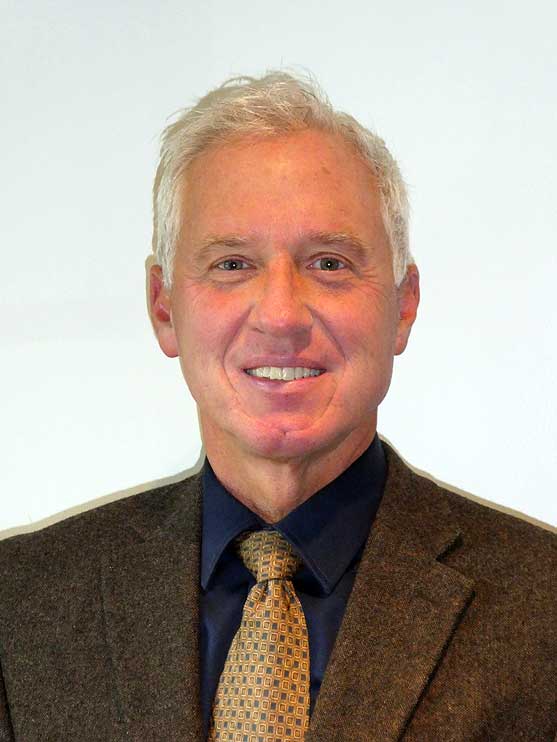
U.S. Department of Commerce
“Being a member of TTRA has been a vital part of growing my career. I found my first job after graduation through a connection I had made during my first annual conference.”

Andria Godfrey
Miles Partnership
TTRA Partner of the Month:
Arrivalist powered by airdna.
Arrivalist is the leading location intelligence platform in the travel industry. They use mobile location datasets to provide actionable insights on consumer behavior, competitive share, media effectiveness, and market trends.
Visit Arrivalist’s Website >>
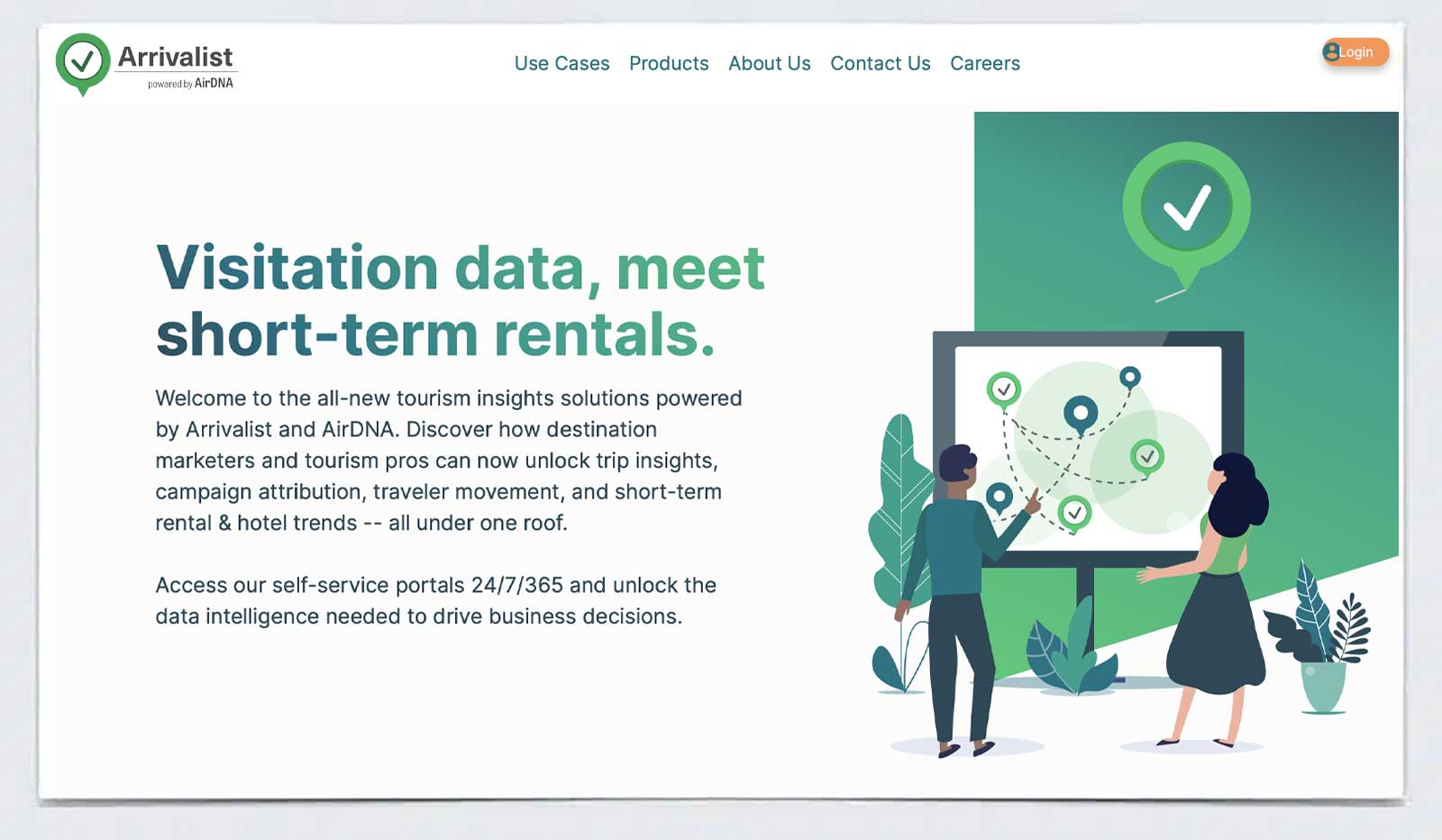
Our partners share our commitment to advancing the travel and tourism industry through research and insights. They are integral to our events and their contributions are widely recognized by current and past TTRA members. We invite you to connect with these organizations and be a part of our mission to drive progress in the industry.
Partnering with TTRA provides organizations with a unique opportunity to connect with, support, and engage with the travel and tourism research community.
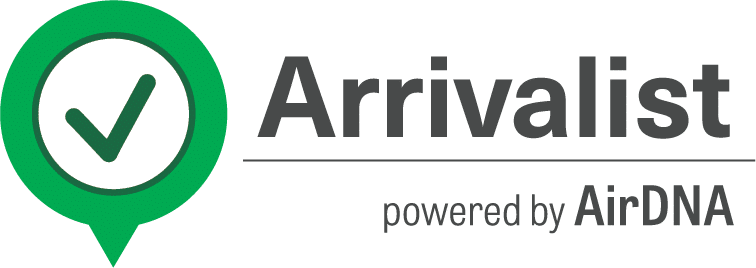
Get In Touch
Regional Chapters
National Office
TTRA is a highly respected and established organization dedicated to advancing the standards of travel and tourism research and analysis. With its focus on excellence, professionalism, quality, and inclusivity, TTRA is the go-to source for professionals in the industry seeking to stay ahead in their field.
- Admission and Aid
- Student Life
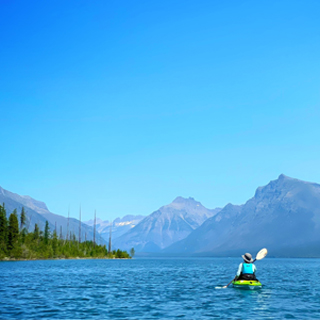
Institute for Tourism & Recreation Research
Site navigation.
- Publications and Reports
- Interactive Data
- Outdoor Recreation Resources
- Employment Opportunities
- Research Listening Sessions
The Institute for Tourism & Recreation Research (ITRR) conducts travel and recreation research in Montana, with a primary focus on the nonresident travel survey conducted throughout the state. ITRR is perhaps best known for producing the widely used statewide estimates of total nonresident visitation and travel expenditures, as well as visitor characteristics, in the state each year, along with the annual estimate of the economic contribution of nonresident travel to Montana’s economy. Read more about the nonresident travel survey and visitation and spending estimation models .
Agritourism Study – We need YOUR help!
Are you or anyone you know involved in agritourism? Whether it's through farmstands, u-pick services, accommodations, tastings, events, CSAs, tours, hunting opportunities, or any other visitor engagement—we want to hear from YOU!
To participate, please visit ITRR Agritourism Survey
- Please click here to submit a research idea.
people visited Montana in 2023.
Learn more here ., spent by montana visitors in 2023., supported by travel and tourism in montana., agree that outdoor recreation is important to their quality of life. learn more here., itrr research priorities.
- Economic Impact of Nonresident Travel
- Visitor Characteristics and Expenditures
- Social and Environmental Impacts of Tourism
- Regional and Community Tourism Planning
- Niche Research Studies
- Annual Travel and Recreation Yearly Outlook
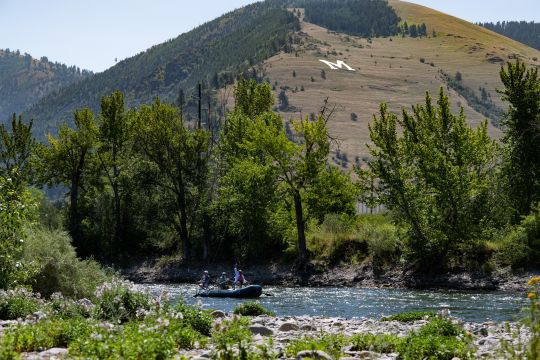
ITRR Annual Report
Within the pages of this report, you will discover a comprehensive overview of our past and future research projects, travel, and outdoor recreation information and data, as well as who we are and how we collect data.
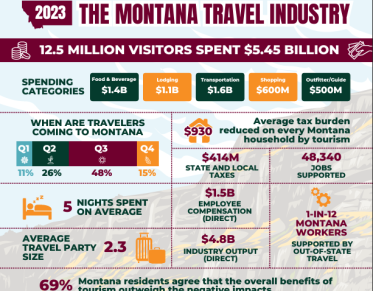
The 2023 Montana Travel Industry
Did you know 12.5 million Montana visitors spent $5.45 billion in 2023? Click here to learn more about what visitors spent and where, what sites they visited, what they did during their visit, and more.

Montana Residents' Attitudes Towards Tourism - 2023
A summary of Montana residents' attitudes towards tourism from the 2023 season. Overall, results from this study show that Montana residents hold a generally positive attitude towards tourism in the state.
Launch UM virtual tour.
/images/cornell/logo35pt_cornell_white.svg" alt="travel research university"> Cornell University --> Graduate School
Travel funding opportunities.
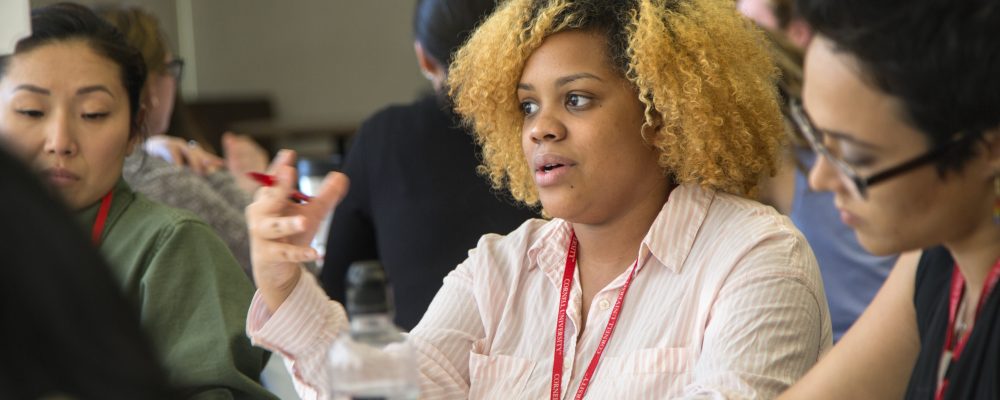
The Graduate School is pleased to provide research degree students (M.A./M.S., Ph.D., J.S.D., D.M.A., M.F.A.) the opportunity to travel the world to enhance their scholarship. Eligible students are encouraged to apply for grant funding related to professional conferences, research travel, or summer language education.
- Conference Grant
- Research Travel Grant
- Summer Foreign Language Grant
Conference Grant – Application Form (Online)
The Graduate School offers Conference Grant awards of up to $700 to research degree students to attend a professional conference at which they are presenting. Online conference presentations are eligible for a grant of up to $200. Grant amounts are detailed in the Locations and Awards PDF . See the application form for more information about eligibility requirements and instructions. Conference grants are reviewed by the 9th of the month preceding the month in which the conference occurs, and grants are awarded to eligible students by the 15th of the preceding month. Applications are accepted up to 30 days following the end of the conference date.
Students are eligible for one conference grant per year and must be within time to degree limits. Masters students are eligible for conference travel grants starting in their first semester until the end of the eighth semester of enrollment. Ph.D. students are eligible for conference travel grants starting in their first semester until the end of the fourteenth semester of enrollment.
Research Travel Grant – Application Form (Online)
The Graduate School awards grants of up to $2,500 for Ph.D. degree students and $1,000 for master’s degree students for travel that is directly related to dissertation and thesis research, not conference travel. Recipients must be enrolled (full-time or in absentia) in a graduate research degree program (M.A./M.S., M.F.A., D.M.A., J.S.D., or Ph.D.) through the Graduate School and be registered at the time of the award. Master’s degree students up to their eighth semester of study and Ph.D. students up to their 14th semester of study are eligible to apply. (Note that the post-A exam requirement has been waived beginning with Spring 2022 submissions.)
In a typical year, the Graduate School awards 50-65 grants. Applications are due annually on October 1, February 1, and April 1 with a call for applications circulated a month prior to the deadline. Decisions will be announced by the first of the month following the application deadline. For example, decisions will be announced by November 1 for the October 1 deadline. See the application form for more information about eligibility requirements and instructions.
For students managing mental health while away from campus, please visit the Mental Health While Away from Campus page.
Learn more about graduate students who have received travel grants:
- MacKenzie Pierce, Musicology
- Jiai Zhang, Food Science and Technology
- Mariano Sanchez Talanquer, Government
- Kalia Bistolas, Microbiology
Summer Foreign Language Grant – Application Form (Online)
Grants of up to $1,000 are offered to research degree students for summer travel to foreign countries for intensive (non-English) language instruction. See the application form for more information about eligibility requirements and instructions. Applications are due by April 15 with a call for applications occurring a month prior to the deadline.
Important Notification: To ensure the safety of all Cornell students traveling on university-related activities, students traveling internationally must enter their travel itinerary and contact information into Cornell’s International Travel Registry . In addition, those traveling to high-risk countries must get approval for such travel from the International Travel Advisory and Response team (ITART).
- Technical Support
- Find My Rep
You are here
Journal of Travel Research
Preview this book.
- Description
- Aims and Scope
- Editorial Board
- Abstracting / Indexing
- Submission Guidelines
The Journal of Travel Research ( JTR ) is the premier, peer-reviewed research journal focusing on the business of travel and tourism development, management, marketing, economics and behavior. JTR provides researchers, educators, and professionals with up-to-date, high quality research on behavioral trends and management theory for one of the most influential and dynamic industries. Founded in 1961, JTR is the oldest of the world’s top-ranked scholarly journals focused exclusively on travel and tourism, reflecting the worldwide importance of tourism, both economically and socially.
Published by SAGE, an international leader in social science and business publishing, JTR publishes the most current and influential scholarship on travel and tourism.
The Journal of Travel Research publishes state-of-the-art research on the most important trends and issues in travel and tourism. JTR offers an international and multidisciplinary perspective on the best development and management practices by publishing research which enhances knowledge of important travel and tourism phenomena. JTR thereby contributes to the development of theory which enables improvements in tourism development policy and strategy; managerial practice; economic, social and environmental outcomes; and education and training programs.
All manuscripts submitted to the Journal of Travel Research are double-blind, peer-reviewed by leading tourism scholars. The JTR editorial review board includes top tourism scholars identified on the basis of their current research and scholarly contributions. This journal is a member of the Committee on Publication Ethics (COPE).
The mission of the Journal of Travel Research is to be the premier, peer-reviewed research journal focused on the business of travel and tourism development, management, marketing, economics and behavior. Given the multifaceted, multidisciplinary and multi-stakeholder character of the tourism economy, this focus implies a concern for both the public and private sector spheres of interest as well as economic, socio-cultural, political, environmental, legal, technological, and demographic issues. Specific goals are to be international in scope with geographic diversity, to be multidisciplinary with diversity in research topics and methodologies, and to be germane to the needs of the travel and tourism industry and its stakeholders.
All manuscripts published in the Journal of Travel Research are double-blind, peer-reviewed by accomplished scholars in the topical area. The standard for publication in the Journal of Travel Research is that a paper must make a substantive contribution, either theoretically or methodologically, to the travel and tourism research literature. Additionally, a paper should specify its contribution to pragmatic tourism management concerns and practice.
Published manuscripts must be on research of the highest standards, on topics of major significance and widespread interest, and relevant to the progress of this important global sector.
- A Matter of Fact
- CAB Abstracts Database
- CABI: Forestry Abstracts
- CABI: Global Health
- CIRET - Centre International de Recherches et d'Etudes Touristiques
- CRN: Business & Industry
- Cambridge Scientific Abstracts
- Clarivate Analytics: Current Contents - Physical, Chemical & Earth Sciences
- Corporate ResourceNET - Ebsco
- Current Citations Express
- EBSCO: Business Source - Main Edition
- EBSCO: Vocational & Career Collection
- Geographical Abstracts: Human Geography
- Land, Life & Leisure
- Leisure, Recreation and Tourism Abstracts (in CAB Abstracts Database)
- MasterFILE - Ebsco
- OmniFile: Full Text Mega Edition (H.W. Wilson)
- Rural Development Abstracts
- Social Sciences Citation Index (Web of Science)
- Soils and Fertilizers
- TOPICsearch - Ebsco
- Wilson Business Periodicals Index/Wilson Business Abstracts
- World Agricultural Economics and Rural Sociology Abstracts (in CAB Abstracts Database)
The Journal of Travel Research publishes articles examining the business of travel and tourism development, management, marketing, economics and behavior. Its purpose is to serve as a medium through which those with research interests can exchange ideas and keep abreast of the latest theoretical, methodological and best practices research.
This Journal is a member of the Committee on Publication Ethics .
Please read the guidelines below then visit the Journal’s submission site https://mc.manuscriptcentral.com/jotr to upload your manuscript. Please note that manuscripts not conforming to these guidelines may be returned or rejected.
Only manuscripts of sufficient quality that meet the aims and scope of the Journal of Travel Research will be reviewed.
There are no fees payable to submit or publish in this Journal. Open Access options are available - see section 6.3 below.
As part of the submission process you will be required to warrant that you are submitting your original work, that you have the rights in the work, that you are submitting the work for first publication in the Journal and that it is not being considered for publication elsewhere and has not already been published elsewhere, and that you have obtained and can supply all necessary permissions for the reproduction of any copyright works not owned by you.
1. What do we publish?
1.1 Aims & Scope
Before submitting your manuscript to the Journal of Travel Research , please ensure you have read the Aims & Scope .
1.2 Article types
Three types of manuscripts can be submitted to the Journal of Travel Research .
1.2.1 Empirical Research Articles
The Journal of Travel Research encourages data-based articles which describe, explain, or predict a tourism phenomenon. Articles using quantitative, qualitative or mixed-methods data are encouraged. These articles should be “problem based”, focusing on a practical tourism development, management, marketing or economics problem. The standard for acceptance is that a paper must make a substantive theoretical and/or methodological contribution to the tourism research literature.
1.2.2 Foundations of Tourism Research Conceptual Articles
The Journal of Travel Research encourages the development of high-quality articles which are broadly conceptual with the goal of building theory and/or reviewing and evaluating the body of research in a substantive and important area. The goals of these papers should be improved conceptual clarity, holistic review of the current research, theory building and expansion, and innovation with forward looking outcomes that propose new opportunities and ideas. These articles may be wholly conceptual or conceptual/empirical with meta-analytic data. Authors of such articles must be invited, or commissioned by the Editor. Lead authors will be internationally leading experts in the field. Researchers who feel they may be in a position and have an interest in writing such an article must first contact the Editor directly with a detailed proposal (not a manuscript at this stage) including a detailed case as author demonstrating a leading international reputation and expertise to be able to write such an article. If the proposed article potentially meets the above goals and the author demonstrates a clear capacity to produce the article, the Editor will then invite the author(s) to proceed. Articles in this series will nevertheless be evaluated through the normal double-anonymize review process.
1.2.3 Letters to the Editor
The Journal of Travel Research encourages conversation. The purpose of these letters will be to provoke conversation, review our research endeavors, and commentary on our research problems, assumptions, methodologies and evaluation. Also included are comments about our publication process and expectations. Finally, constructive commentary concerning research publications is encouraged.
All Empirical Research Articles and Foundations of Tourism Research Conceptual Articles submitted to the Journal of Travel Research are first assessed by the Editor to determine their suitability for potential publication in JTR . Subsequently, selected manuscripts are then double-anonymize, peer reviewed by accomplished scholars in the topical area. Acceptance of Letters to the Editor will be the prerogative of the Editor. In all cases, the standard for publication in the Journal of Travel Research is that a paper must make a substantive theoretical and/or methodological contribution to the tourism research literature.
1.3 Writing your paper
The Sage Author Gateway has some general advice and on how to get published , plus links to further resources. Sage Author Services also offers authors a variety of ways to improve and enhance their article including English language editing, plagiarism detection, and video abstract and infographic preparation .
1.3.1 Make your article discoverable
When writing up your paper, think about how you can make it discoverable. The title, keywords and abstract are key to ensuring readers find your article through search engines such as Google. For information and guidance on how best to title your article, write your abstract and select your keywords, have a look at this page on the Gateway: How to Help Readers Find Your Article Online .
1.4 Coronavirus (COVID-19) requirements for manuscripts
COVID-19 has fundamentally affected travel and tourism and therefore impacted the way in which travel and tourism research is conducted and reported. Consequently, manuscripts submitted to the Journal of Travel Research must acknowledge the effect of COVID-19. For this reason, JTR has introduced some additional manuscript submission requirements. Please carefully read the following requirements and ensure you have addressed these appropriately:
- The relevance and usefulness of research conducted pre-COVID-19 will, in general, have declined and in some cases may now be obsolete. How we make use of pre-COVID-19 research to inform post-COVID-19 research design must recognize this reality. A thorough review of the relevant literature is still required, but authors must now acknowledge and discuss the relevance and usefulness of this earlier research in light of COVID-19 developments.
- Researchers who have already collected or used pre-COVID-19 primary data (on or before January 31, 2020) but are yet to finalize their analysis and complete the writing of their manuscript must consider how they may need to address the effect of COVID-19 on their interpretations and conclusions.
- For research involving the collection of data, in part or in whole, after January 31, 2020, during dramatically changing circumstances, will be difficult to analyse and interpret leading to potentially false assumptions and erroneous conclusions. For example, research dealing with tourism consumer behavior cannot ignore how tourism consumers are seeing the world differently. The design, analysis and writing of such research must not ignore this seismic change. Because research topics and circumstances vary so widely, it is not possible to provide prescriptive advice on how researchers must address these challenges; suffice to say that manuscript reviewers will want to clearly see and understand that authors have convincingly addressed such issues in their manuscripts.
- We are of course seeing a large influx of COVID-19-related travel and tourism research. Descriptive research which simply confirms what is already largely known does not meet JTR publication requirements. Hence, when researchers are thinking about potential post-COVID-19 research topics, it would be most helpful if they reflected on this likelihood so that: a) certain topics are not over-researched, and b) the research is not merely descriptive (the what) but is also explanatory (the why) and prescriptive (the how) thereby contributing to theory..
2. Editorial Policies
2.1 Peer review policy
Sage does not permit the use of author-suggested (recommended) reviewers at any stage of the submission process, be that through the web-based submission system or other communication. Reviewers should be experts in their fields and should be able to provide an objective assessment of the manuscript. Our policy is that reviewers should not be assigned to a paper if:
• The reviewer is based at the same institution as any of the co-authors
• The reviewer is based at the funding body of the paper
• The author has recommended the reviewer
• The reviewer has provided a personal (e.g. Gmail/Yahoo/Hotmail) email account and an institutional email account cannot be found after performing a basic Google search (name, department and institution).
2.2 Review criteria
As a leading journal in travel and tourism research, the standards for publication in JTR are very high. There are five primary criteria which determine whether a manuscript is suitable for publication, as follows:
- Relevant - the manuscript must be directly relevant to the stated aims and scope of the journal.
- Significant - the subject and outcomes of the research must make a significant, important, and valuable contribution to travel and tourism knowledge and theory.
- Original - the research must be original, new, and leading-edge such that it adds new knowledge to a topic of importance to JTR readership.
- Rigorous - the research design and methodology must be of a very high standard.
- Articulate - the manuscript must achieve a very high standard of English grammar and expression and must communicate all important aspects of the research in a very clear manner.
JTR receives several hundred submissions per year. The page budget for the journal permits us to publish only a small portion of these (around 114 articles per year currently). Hence, the competition for a publication slot is quite high. JTR is therefore unable to publish many of the manuscripts it receives. So, to provide authors with some further guidance on the factors which have the greatest impact on manuscript acceptance/rejection, the following additional points may be helpful as a general guide. JTR is not primarily a hospitality/hotel management, leisure and recreation management, or even management research journal. Yet, JTR does publish some research which blends into these fields of research providing the focus of the research has a strong travel and tourism aim.
- JTR publishes papers which are on the ‘leading edge of the wave’ or are breaking new and important ground that will become the foundation for interest in tourism research into the future. JTR seeks to lead travel and tourism research and to help shape the tourism research agenda rather than serving merely as a follower. Many studies are undertaken on topics for which there is already a major body of literature. JTR welcomes further research on these well-established research issues providing they lead to important, new results. This might occur if the research advances findings further into new important situations or helps to fill important gaps. It might also occur if the findings challenge orthodox assumptions and paradigms, or revolutionize knowledge on the issue. But if work on already heavily-researched issues simply adds yet one further similar study to the mix, JTR is unlikely to be interested in publishing the manuscript.
- JTR does not have a bias towards or away from any particular methodologies. What matters is whether the research is designed and executed well, and the research topic is of significant interest. It is important to explain and justify why the selected methodology is the most appropriate from among the various approaches available, given the research aims and objectives.
- Many studies are undertaken with a focus on addressing a particular local situation or context. The results from such studies need to have broader relevance and the context itself should be of widespread interest. The findings may indeed be of great interest and relevance to the local tourism sector, but if findings cannot be generalized to other populations, JTR is probably not the right target journal.
- Minor English grammar and expression problems can be potentially addressed by the author through the manuscript review process, but major problems will result in rejection. Only manuscripts with a high standard of English in the final manuscript version are publishable. It is always the author’s responsibility to ensure a high English standard.
- Finally, every manuscript is competing for a limited number of publications slots per year. So sometimes very good research can miss out on a place in JTR simply because there are other more deserving manuscripts.
Reviewers are asked to consider and assess each manuscript on a 5-point scale for each of the following 14 items:
- Is the topic directly relevant to the stated aims and scope of JTR ?
- Does the research make a valuable contribution to travel and tourism knowledge and theory?
- Is the research substantially original and leading-edge for publication in JTR ?
- Is the research design rigorous, methodologically sound, and of a high standard?
- Is the manuscript highly articulate and clear? Does it contain a high standard of English grammar and expression?
- Is the literature review appropriate up-to-date?
- Is there a significant theoretical contribution to the literature?
- Is there a significant methodological contribution to the literature?
- Is the methodology sufficiently explained for future research to follow/replicate?
- Are there clearly stated and significant practical and applied contributions in the conclusions of the manuscript?
- Are there clearly stated and significant theoretical contributions in the conclusions of the manuscript?
- Are there clearly stated and significant methodological contributions in the conclusions of the manuscript?
- Are there clearly stated and exhaustive limitations in the conclusions of the manuscript?
- Are conclusions warranted?
2.3 Authorship
All parties who have made a substantive contribution to the article should be listed as authors. Principal authorship, authorship order, and other publication credits should be based on the relative scientific or professional contributions of the individuals involved, regardless of their status. A student is usually listed as principal author on any multiple-authored publication that substantially derives from the student’s dissertation or thesis.
2.3.1 Writing assistance
Individuals who provided writing assistance, e.g. from a specialist communications company, do not qualify as authors and so should be included in the Acknowledgements section. Authors must disclose any writing assistance – including the individual’s name, company and level of input – and identify the entity that paid for this assistance.
It is not necessary to disclose use of language polishing services.
Please supply any personal acknowledgements for writing assistance separately to the main text on the title page only to facilitate anonymous peer review.
Please note that AI chatbots, for example ChatGPT, should not be listed as authors. For more information see the policy on Use of ChatGPT and generative AI tools .
2.4 Acknowledgements
All contributors who do not meet the criteria for authorship should be listed in an Acknowledgements section. Examples of those who might be acknowledged include a person who provided purely technical help, or a department chair who provided only general support. Please supply any personal acknowledgements separately to the main text and only as part of the title page to facilitate anonymous peer review.
2.4.1 Third party submissions
Where an individual who is not listed as an author submits a manuscript on behalf of the author(s), a statement must be included in the Acknowledgements section of the manuscript and in the accompanying cover letter. The statements must:
- Disclose this type of editorial assistance – including the individual’s name, company and level of input
- Identify any entities that paid for this assistance
- Confirm that the listed authors have authorized the submission of their manuscript via third party and approved any statements or declarations, e.g. conflicting interests, funding, etc.
Where appropriate, Sage reserves the right to deny consideration to manuscripts submitted by a third party rather than by the authors themselves .
2.5 Funding
The Journal of Travel Research requires all authors to acknowledge their funding in a consistent fashion under a separate heading. Please visit the Funding Acknowledgements page on the Sage Journal Author Gateway to confirm the format of the acknowledgment text in the event of funding, or state that: This research received no specific grant from any funding agency in the public, commercial, or not-for-profit sectors. Funding details should be added to the title page only in order to facilitate the anonymous review process.
2.6 Declaration of conflicting interests
The Journal of Travel Research encourages authors to include a declaration of any conflicting interests and recommends you review the good practice guidelines on the Sage Journal Author Gateway .
For guidance on conflict of interest statements, please see the ICMJE recommendations here .
3. Preparing your manuscript for submission
3.1 Online submission system
Before submitting your manuscript, please ensure you carefully read and adhere to all the guidelines and instructions to authors provided herein. The Journal of Travel Research (JTR) is hosted on SageTRACK: a web-based online submission and peer review system powered by ScholarOne™ Manuscripts. Please read the guidelines below, and then simply visit https://mc.manuscriptcentral.com/jotr to login and submit your article online.
Important note: If you are submitting to your journal via Sage Track, please check whether you already have an account in the system before trying to create a new one. If you have reviewed or authored for the journal in the past year it is likely that you will have had an account created. For further guidance on submitting your manuscript online, please visit ScholarOne Online Help .
3.2 File formatting
The preferred format for your manuscript is Word. LaTeX files are also accepted. Word and (La)Tex templates are available on the Manuscript Submission Guidelines page of our Author Gateway.
Manuscripts are submitted as two or more files. The first file is the title page containing the manuscript title, author names, affiliations, any acknowledgments and declarations, and both postal and e-mail addresses. The other file(s) should contain no information which might reveal the identity of the authors. These files provide the body of the article including the title, abstract, text body, and references. Tables and figures may also be included in this file on separate pages at the end of the manuscript or uploaded as separate files.
3.3 Manuscript preparation
To be considered for publication in the Journal of Travel Research, manuscripts must meet the following standards:
- Everything is double spaced.
- Everything is left justified, with a ragged right-hand margin (no full justification)
- Format is one inch margins on all sides. Minimum print size is 12 point, except in tables and figures where 10 pt may be used.
- Manuscripts are submitted as two files: The cover page and the manuscript body.
- The cover page should include the manuscript title, ALL authors’ name, position, affiliation, address, telephone numbers, fax numbers, e-mail addresses, and any acknowledgements. Please use title case when entering the article title into the submission form.
- The manuscript file should contain the title, abstract, 4 to 5 keywords, text, appendices, notes, references, each table, and each figure.
- Authors’ names are to appear only on the cover page. There should be nothing in the manuscript file that identifies the authors either by name or institution.
- Tables and figures are not to be embedded in the manuscript – each table and figure should be provided as a separate page at the end of the manuscript. Tags should be inserted in the manuscript indicating approximately where tables and figures should be located.
- Within the manuscript file, Title, Abstract and keywords should be on one page. After that, each section is to begin with a new page.
- Abstract is to be 150 words or less
- Manuscripts must be 10,000 words or less. This 10,000 word limit includes everything in the manuscript except the title, abstract, keywords, tables, figures and references. Due to page limitations and the desire to accommodate as many authors as possible, this should be considered a hard limit.
- Acronyms are only allowed in the following circumstances: where they represent universally recognised organisations, e.g. UNWTO, NATO, or internationally recognised classifications such as ISO, GDP, or for well recognised scientific methodological terms such as ANOVA, LISREL, PLS and so on. Acronyms are not allowed for field specific terms in any circumstances.
- American English spellings are used in all sections except references. Sage Publications requires English translations of all reference citations.
- Endnotes are to be grouped on a separate page. There are to be no footnotes.
- All in-text citations should be included in the reference list, and all references should have in-text citations.
3.4 Reference style
The Journal of Travel Research uses APA 7th edition formatting. Information on APA reference examples can be found here: https://apastyle.apa.org/ .
3.5 English language editing services
Authors seeking assistance with English language editing, translation, or figure and manuscript formatting to fit the journal’s specifications should consider using Sage Language Services . Visit Sage Language Services on our Journal Author Gateway for further information.
3.6 Artwork, figures and other graphics
For guidance on the preparation of illustrations, pictures and graphs in electronic format, please visit Sage’s Manuscript Submission Guidelines
Figures supplied in color will appear in color online regardless of whether or not these illustrations are reproduced in color in the printed version. For specifically requested color reproduction in print, you will receive information regarding the costs from Sage after receipt of your accepted article.
Figures are to be camera ready – they must appear exactly as they should in the journal. The Journal of Travel Research is published in black and white. Figures should be black and white with gray and pattern shading if necessary. Any color requirements for the printed manuscript version will incur a charge to the author(s).
Tables should not have cells or lines dividing the different elements. Preferably, each element should be separated by a tab.
3.7 Supplementary material
This journal is able to host additional materials online (e.g. datasets, podcasts, videos, images etc) alongside the full-text of the article. For more information please refer to our guidelines on submitting supplementary files
As part of our commitment to ensuring an ethical, transparent and fair peer review process Sage is a supporting member of ORCID, the Open Researcher and Contributor ID . ORCID provides a unique and persistent digital identifier that distinguishes researchers from every other researcher, even those who share the same name, and, through integration in key research workflows such as manuscript and grant submission, supports automated linkages between researchers and their professional activities, ensuring that their work is recognized.
The collection of ORCID iDs from corresponding authors is now part of the submission process of this journal. If you already have an ORCID iD you will be asked to associate that to your submission during the online submission process. We also strongly encourage all co-authors to link their ORCID ID to their accounts in our online peer review platforms. It takes seconds to do: click the link when prompted, sign into your ORCID account and our systems are automatically updated. Your ORCID iD will become part of your accepted publication’s metadata, making your work attributable to you and only you. Your ORCID iD is published with your article so that fellow researchers reading your work can link to your ORCID profile and from there link to your other publications.
If you do not already have an ORCID iD please follow this link to create one or visit our ORCID homepage to learn more.
3.9 Information required for completing your submission
You will be asked to provide contact details and academic affiliations for all co-authors via the submission system and identify who is to be the corresponding author. These details must match what appears on your manuscript. At this stage please ensure you have included all the required statements and declarations and uploaded any additional supplementary files (including reporting guidelines where relevant).
3.10 Permissions
Please also ensure that you have obtained any necessary permission from copyright holders for reproducing any illustrations, tables, figures or lengthy quotations previously published elsewhere. For further information including guidance on fair dealing for criticism and review, please see the Copyright and Permissions page on the Sage Author Gateway .
4. Manuscript revision requirements
To enable you to revise your manuscript so as to give it the best chances of reaching a successful outcome, please carefully read these guidelines and follow them meticulously. It is essential that you understand that the invitation to revise and resubmit a paper is not a commitment on the part of the Journal of Travel Research to eventually accept and publish the paper. Even if the author addresses the concerns raised in the initial review, the further review of the revised manuscript must determine whether the paper then meets the standards required for publication in JTR .
As you revise your paper for resubmission to the Journal of Travel Research , please make sure it meets the following guidelines. If the paper is ultimately accepted, you will receive the list of formatting requirements again with a “it must meet…” statement. It is critical that you take care to ensure you meet these requirements as it can save a great deal of your time and our time at the typesetting stage.
Please submit your revised paper via the Journal of Travel Research Manuscript Central process. It is important that the paper be submitted as a revision of your first submission. Specifically, this means it would be submitted under the same manuscript number and be treated both by Manuscript Central and by the Editorial Office as a revised paper. This will result in a much faster review process.
Include with your submission a supplementary file indicating how the paper has been revised relative to the substantive comments made by the reviewers of the original version as well as any additional comments or requirements indicated by the Editor as contained in the decision email. It is important that this file be submitted together with the revised manuscript so that it can be forwarded it to the reviewers. This paper must explain how the authors have addressed the concerns raised in the initial review. Subsequent reviews focus specifically on this response. When you finish with your resubmission, you can review a pdf file of the complete submission – make sure the supplementary file is included. Also, since it is potentially going back to the reviewers, please be sure not to include your name or identity in the supplementary file.
To create this supplementary file you should:
- Cut and paste all comments by each reviewer, as well any requirements indicated by the Editor in the decision email.
- For each substantive comment, provide a detailed explanation and justification of your response.
- Your response to each comment should clearly indicate whether or not a change has occurred in the manuscript and, if so, what that change is and precisely where it can be found.
- If you are in disagreement with the reviewer comments or suggestions, or prefer an alternative approach to address an issue they have raised, this is quite acceptable. However, in such cases, you need to discuss and explain your views and justify your preferred approach either not to change the manuscript, or to change it in a different manner. Again, any change should be clearly explained and its location in the manuscript specified.
Attending to these points adequately will significantly benefit the further review of revised manuscripts.
In addition to responding to the reviewer comments, it is important to make sure the paper is current in its review of the literature. Often the manuscript process, from inception to completion, can take many months. It is important that, during each revision process, you update the review of literature, including, as appropriate, how this paper fits within the related papers published in the tourism literature and JTR over the past few years. Please also make sure to check for relevant manuscripts in the JTR Online First ( http://jtr.sagepub.com/content/early/recent ) listing as that is the most current papers that will be published in advance of your paper.
5. On acceptance and publication
5.1 Sage Production
Your Sage Production Editor will keep you informed as to your article’s progress throughout the production process. Proofs will be sent by PDF to the corresponding author and should be returned promptly. Authors are reminded to check their proofs carefully to confirm that all author information, including names, affiliations, sequence and contact details are correct, and that Funding and Conflict of Interest statements, if any, are accurate.
5.2 Online First publication
Online First allows final articles (completed and approved articles awaiting assignment to a future issue) to be published online prior to their inclusion in a journal issue, which significantly reduces the lead time between submission and publication. Visit the Sage Journals help page for more details, including how to cite Online First articles.
5.3 Access to your published article
Sage provides authors with online access to their final article.
5.4 Promoting your article
Publication is not the end of the process! You can help disseminate your paper and ensure it is as widely read and cited as possible. The Sage Author Gateway has numerous resources to help you promote your work. Visit the Promote Your Article page on the Gateway for tips and advice.
6. Publishing Policies
6.1 Publication ethics
Sage is committed to upholding the integrity of the academic record. We encourage authors to refer to the Committee on Publication Ethics’ International Standards for Authors and view the Publication Ethics page on the Sage Author Gateway
6.1.1 Plagiarism
The Journal of Travel Research and Sage take issues of copyright infringement, plagiarism or other breaches of best practice in publication very seriously. We seek to protect the rights of our authors and we always investigate claims of plagiarism or misuse of published articles. Equally, we seek to protect the reputation of the journal against malpractice. Submitted articles may be checked with duplication-checking software. Where an article, for example, is found to have plagiarised other work or included third-party copyright material without permission or with insufficient acknowledgement, or where the authorship of the article is contested, we reserve the right to take action including, but not limited to: publishing an erratum or corrigendum (correction); retracting the article; taking up the matter with the head of department or dean of the author's institution and/or relevant academic bodies or societies; or taking appropriate legal action.
6.1.2 Prior publication
If material has been previously published it is not generally acceptable for publication in a Sage journal. However, there are certain circumstances where previously published material can be considered for publication. Please refer to the guidance on the Sage Author Gateway or if in doubt, contact the Editor at the address given below.
6.2 Contributor's publishing agreement
Before publication, Sage requires the author as the rights holder to sign a Journal Contributor’s Publishing Agreement. Sage’s Journal Contributor’s Publishing Agreement is an exclusive licence agreement which means that the author retains copyright in the work but grants Sage the sole and exclusive right and licence to publish for the full legal term of copyright. Exceptions may exist where an assignment of copyright is required or preferred by a proprietor other than Sage. In this case copyright in the work will be assigned from the author to the society. For more information please visit the Sage Author Gateway
6.3 Open access and author archiving
The Journal of Travel Research offers optional open access publishing via the Sage Choice programme and Open Access agreements, where authors can publish open access either discounted or free of charge depending on the agreement with Sage. Find out if your institution is participating by visiting Open Access Agreements at Sage . For more information on Open Access publishing options at Sage please visit Sage Open Access . For information on funding body compliance, and depositing your article in repositories, please visit Sage’s Author Archiving and Re-Use Guidelines and Publishing Policies .
7. Further information
Any correspondence, queries or additional requests for information on the manuscript submission process should be sent to the Co-Editors Nancy Gard McGehee at [email protected] or James Petrick at [email protected] .
- Read Online
- Sample Issues
- Current Issue
- Email Alert
- Permissions
- Foreign rights
- Reprints and sponsorship
- Advertising
Individual Subscription, Print Only
Institutional Subscription, E-access
Institutional Subscription & Backfile Lease, E-access Plus Backfile (All Online Content)
Institutional Subscription, Print Only
Institutional Subscription, Combined (Print & E-access)
Institutional Subscription & Backfile Lease, Combined Plus Backfile (Current Volume Print & All Online Content)
Institutional Backfile Purchase, E-access (Content through 1998)
Individual, Single Print Issue
Institutional, Single Print Issue
To order single issues of this journal, please contact SAGE Customer Services at 1-800-818-7243 / 1-805-583-9774 with details of the volume and issue you would like to purchase.
Graduate School
- Request Information
- Research Travel Grants
What are Research Travel Grants?
Research Travel Grants (RTG) are small grants that support research travel, both domestically and internationally, in preparation for a student’s thesis or dissertation. RTGs do not support travel to present at conferences.
Funding for these grants generously comes from the following endowments:
- Class of 1890 Fellowship
- Walter B. Cline Memorial Fellowship
- Norman J. Dewitt Memorial Award in Humanities
- Albert Howard Award
- Frieda M. Kunze Fellowship
- Patrick R. and Kathryn J. Lewis Graduate Fellowship Fund
- Eva O. Miller Fellowship
- Shevlin Fellowship
- Hugh J. and Elizabeth R. Thompson Fellowship Fund
- Alexander P. Anderson and Lydia Anderson Fellowship
HOW MUCH IS THE AWARD?
Doctoral candidates: up to $3,000
Doctoral pre-candidates: up to $1,500
Master’s students: up to $500
Grant awards do not provide tuition and/or health insurance benefits.
WHO IS ELIGIBLE TO APPLY?
- U.S. citizens, permanent residents, graduate students lawfully in the U.S. on a non-temporary basis, MN Dream Act graduate students, and International students
- Applicants must be actively pursuing a research-based graduate degree at the University of Minnesota Twin Cities or Duluth campuses
- Applicants must be enrolled in tuition-bearing credit at the graduate tuition rate during the term in which they apply
- Applicant must have research travel days during the term in which they apply
- Applicants are eligible to receive one award at pre-candidacy level (master’s or doctoral pre-candidate) and one award at candidacy level
- Master's students are ineligible if they have already received a Judd Travel Grant; cannot receive RTG and Judd Grants simultaneously
- Doctoral candidates are ineligible if they have previously received a Thesis Research Travel Grant
- Applications for conference travel will not be considered
HOW DO I APPLY?
Graduate students apply directly through the electronic application form .
WHAT IS THE DEADLINE?
Applications accepted October 1-31 for Fall research travel (selection by November 15)
Applications accepted February 1-28 for Spring research travel (selection March by 15)
Applications accepted June 1-30 for Summer research travel (selection by July 15)
WHAT ARE THE APPLICATION MATERIALS?
The applicant will upload a single PDF of the application materials in the following order:
- Research Proposal (1-page maximum), see details below
- Budget Statement
- Curriculum Vitae (2-page maximum), see details below
- IRB/IACUC Documentation, see details below
- Unofficial UMN graduate transcript
Depending on the nature and location of your proposed research, you may need to submit additional application items. Please see the FAQ below for more details.
Required PDF title format: Last Name, First Name - Name of Graduate Program
WHAT IS THE REVIEW AND LOTTERY SELECTION?
The Graduate School Fellowship Office (GSFO) and an interdisciplinary faculty review committee review all applications each cycle to determine 1) eligibility requirements are met and 2) application is recommended for funding. All applications recommended for funding will go into a lottery system, one recommended by UMN OIT, for award selection.
APPLICATION MATERIAL DETAILS
+ research proposal.
- One-page maximum , single-spaced, 12-point Times New Roman type, 1-inch margins. Key references, diagrams, or pictures may be included (they are not required) on a single additional appendix page (no formatting requirements).
- Include a working title for your research project at the top of the proposal.
- Describe your research plan in terms that are accessible to a non-specialist. Avoid jargon. If jargon must be used, please define the language.
- Explain the importance of the proposed travel and the direct impact it will have on your thesis or dissertation.
- If your research is part of a larger group project, be specific about your role and independent contribution.
+ CURRICULUM VITAE
- Two-page maximum , single-spaced, 12-point Times New Roman type, 1-inch margins
- Focus on publications, presentations, academic accomplishments, and awards
+ IRB/IACUC DOCUMENTATION
Please consult the IRB and/or IACUC webpages for additional information.
If your research involves Human or Animal Subjects, provide the date of IRB/IACUC approval and documentation of approval (1-2 pages).
If your project involves human or animal subjects but IRB/IACUC told you that approval is not needed then provide the email or letter stating this decision.
If your Advisor has IRB/IACUC approval that covers this research project then provide that approval page (1-2 pages).
If your research does not involve Human or Animal subjects then submit the Human Subjects Statement (requires Advisor signature).
If your IRB/IACUC application is still pending, provide documentation to show the submitted request (1-2 pages). Once received, IRB/IACUC approval can be submitted directly to [email protected]. If selected to receive a Research Travel Grant, funding is contingent upon proof of IRB/IACUC approval and/or decision.
+ Do I need to obtain a language evaluation to conduct my research?
If you are conducting research in another language and you are not a native speaker of the language, you will need to obtain a language evaluation. Please email [email protected] for more information.
If you are a native speaker of the language, please include a signed statement indicating the language which will be used to conduct research and that you are a native speaker of that language. You may sign this statement yourself.
+ Do I need to obtain a letter of affiliation?
Depending on the nature and location of your proposed research, you may need a letter of affiliation.
A letter of affiliation demonstrates to faculty reviewers that, if selected to receive grant funding, you will be able to successfully carry out your proposed research. Reviewers are hesitant to approve funding if there is any doubt that the research can be successfully conducted.
If you are conducting research in a library archive, museum, or other public space, you can submit an email from an employee that verifies that you will have access to the required materials. If the archive/materials in question are available to the public, you can include a copy of the webpage highlighting the pertinent information.
If you have questions about a letter of affiliation, please email [email protected] .
+ Do I need a letter of affiliation to conduct surveys?
Yes, because you will want to provide proof to reviewers that you will be able to successfully conduct your proposed research. If you are conducting surveys, please provide documentation that demonstrates your ability to connect with the appropriate resources (e.g. community, business, and/or scholarly contacts).
+ WHAT ARE THE DATES CONSIDERED FOR EACH CYCLE?
The cycles correspond to the semesters or terms in the current academic year.
Fall cycle requests are accepted for research travel start and/or end dates between September 1 - December 31.
Spring cycle requests are accepted for research travel start and/or end dates between January 1 - May 31.
Summer cycle requests are accepted for research travel start and/or end dates between June 1 - August 31.
The travel dates can span more than one term. Applicants should apply to a cycle during which they will have some or all of their travel days taking place. In addition, in order to be eligible for funding, if selected, the applicant must be enrolled in the corresponding fall semester, spring semester, or summer term in which they are applying for an RTG.
If travel dates span more than one semester, and an applicant is not selected for funding during one cycle then they can apply again during the next cycle that contains research travel dates.
+ How is the RTG funding disbursed?
Research Travel Grants (RTG) count as estimated financial aid assistance and are disbursed via scholarship upload to a recipient's student account. Once posted to the student account, and if there is no current past due balance, then the RTG will disburse into a recipient's bank account via direct deposit, if set up, or a paper check will be mailed to the address on file.
- About the Grad School
- Staff Directory
- Office Locations
- Our Campuses
- Twin Cities
- Mission & Values
- Strategic Plan
- Policies & Governance
- Graduate School Advisory Board
- Academic Freedom & Responsibility
- Academic & Career Support
- GEAR 1 Resource Hub
- GEAR+ Resource Hub
- Ask an Expert
- Graduate School Essentials
- Transferable Skills Checklist
- Grad InterCom
- First Gen Connect
- Advising & Mentoring
- Individual Development Plan (IDP)
- Three-Minute Thesis
- Application Instructions
- Application Fees
- Big 10 Academic Alliance Fee Waiver Program
- Application Status
- Official Transcripts & Credentials
- Unofficial Transcripts & Credentials
- Recommendation Letters
- International Student Resources
- Admissions Guide
- Change or Add a Degree Objective
- Readmission
- Explore Grad Programs
- Preparing for Graduate School
- Program Statistics
- Recruiting Calendar
- Funding Opportunities
- Prospective & Incoming Students
- Diversity of Views & Experience Fellowship (DOVE)
- National Science Foundation Graduate Research Fellowship
- Current Students
- Banting Postdoctoral Fellowship Program
- Distinguished Master's Thesis Competition
- Diversity Predoctoral Teaching Fellowships
- Doctoral Dissertation Fellowship
- Excellence in Teaching Award
- Fulbright U.S. Student Program
- Graduate SEED Awards
- Harold Leonard Memorial Fellowship in Film Study
- Interdisciplinary Doctoral Fellowship
- Judd Travel Grants
- Louise T. Dosdall Endowed Fellowship
- Mistletoe Fellowship
- Smithsonian Institute Fellowship
- Torske Klubben Fellowship
- Program Requests & Nominations
- Bridging Funds Program
- Best Dissertation Program
- Co-Sponsorship Grants Program
- Google Ph.D. Fellowship
- National Science Foundation Research Traineeship
- National Science Foundation Innovations in Graduate Education Program
- Training Grant Matching Funds
- Fellowship Dates & Deadlines
- Information for Staff & Faculty
- About Graduate Diversity
- Diverse Student Organizations
- McNair Scholars Resources
- About the Community of Scholars Program
- Graduate Recruitment Ambassadors Program
- Community of Scholars Program Writing Initiative
- Faculty & Staff Resources
- Diversity Recruitment Toolkit
- Summer Institute
- Diversity Office Staff
- What's Happening
- E-Publications
- Submit Content
- News Overview
- Events Overview
- The Office of Undergraduate Research and Major Awards
- The Honors College
Research Resources
Undergraduate research travel fellowship.

The Office of Undergraduate Research and Major Awards offers the Undergraduate Research Travel Fellowship to support undergraduate students from the University of Houston in enhancing their academic development, disseminating their research results, and increasing the visibility of the institution by supporting undergraduate student travel at regional, national, and international conferences. The travel funding is intended for undergraduates presenting the results of their research or creative activities at meetings for a regional, national, or international audience within their academic discipline.
Complete the Undergraduate Research Travel Fellowship application .
Nature of Support
- The maximum amount of each individual travel award is $750.00. There is no exception to this amount for foreign travel. Only the most economical fares are eligible for this program and students may not receive more than the state-approved per diem rate for lodging and meals. You may search for specific per diem rates here.
- Since this travel allotment may not fund all the costs incurred through traveling, applicants are strongly encouraged to seek additional funding through research grants, conference travel award programs, and inquire through their faculty mentor and department chair about other potential funding resources that may be available.
- Eligible travel expenses include registration fees, airfare, ground transportation, lodging, and meals. Entertainment or "miscellaneous" expenses will not be covered.
- The fund is not intended to replace support for undergraduate student travel from existing sources (e.g., contracts and grants, and current policies or practices for travel support within colleges or departments). The intent is to increase the number of students that are presenting, performing, or exhibiting at regional, national, and international conferences.
Qualifying Venues
- An award may be allocated only if the student is presenting his or her research or creative work at a qualifying venue. Students who have been invited to facilitate a roundtable or discussion based in research may also be eligible; such applications are reviewed on a case-by-case basis.
- Qualifying venues include regular or annual meetings of a national (U.S. or another country's national society) or international professional society; or quadrennial (or otherwise periodically occurring) international congresses that are sponsored by a number of national professional societies. Professional societies are usually defined as those that collect dues, have elected officers, and may have published journals or other outlets for scholarly work. Qualifying venues may also include meetings sponsored by a government agency or industrial society if the meetings are of an academic nature and take place annually or biennially; and juried competitions of a national or international scope that are held regularly.
- Funds are not to be allocated to attend special meetings or meetings of special interest groups.
Applicant Eligibility
- Only undergraduate students at UH main campus are eligible to receive funding from this program.
- For the presentation of collaborative research which involves multiple students, only the presenting undergraduate student may be supported. In special cases (e.g., duet performances), this limitation may be waived upon recommendation of the faculty advisor contingent upon available funding.
- Students who have previously been awarded an Undergraduate Research Travel Fellowship are not eligible for funding to attend a second conference in the same academic year. However, if a student believes they have a compelling reason why they should receive additional funding, then they should contact the Office of Undergraduate Research and Major Awards directly .
Documentation Required
The application must include the following:
- Abstract that was submitted to sponsoring organization (200 words)
- Letter of recommendation from UH Faculty mentor
- Acceptance letter from sponsoring organization
If awarded, you will receive instructions regarding how you will receive your funding. After the conference, you will be required to submit the following in order to process your reimbursement:
- A two-page reflective report, which should include information on your experience traveling, presenting on your work, and representing the University of Houston at a conference. In the essay, you should describe how attending and presenting at the meeting helped you develop skills in one or more of the following areas: problem-solving, effective communication, teamwork, cultural competency, social responsibility, and/or ethical decision-making.
- Your return boarding pass
Portions or all of your two-page report may be used in marketing materials for the Office of Undergraduate Research and Major Awards and the Honors College. Photos of the student presenting are strongly encouraged for marketing purposes.
Application Process and Deadlines
- Applications must be approved by the appropriate department chair or equivalent and will be reviewed for final approval by the committee appointed by the Associate Dean of Undergraduate Research. Applicants must download the application, complete it electronically, print a hard copy, and then the student applicant, faculty mentor, and department chair (or equivalent) must sign it. Signed application forms and supporting documentation should be submitted to the Office of Undergraduate Research and Major Awards in Room 212W in The Honors College, or as an electronic PDF to [email protected] prior to no less than 30 days prior to travel.
- Applications must be received no later than 30 days prior to travel. Applications received after this time will not be reviewed.
Decision Process
- A selection committee appointed by the Associate Dean of Undergraduate Research will review requests for support to ensure conformance to the guidelines, and if funding is available, will normally approve those applications that adhere to the guidelines. Note that the committee will not be reviewing the papers or posters themselves; the peer-review process of the appropriate meetings and the approval processes within the colleges are assumed to have done that work. In case there are more qualifying requests than available funds, the committee will utilize more stringent criteria.
- Applications are reviewed on a rolling basis. Students are encouraged to submit all application materials well before the 30-day deadline to ensure funds can be disbursed as soon as possible.
- Once an application has been approved, no substitutions will be allowed; if an undergraduate student wishes to use the program’s funds to support a presentation other than the one for which the original application was submitted, he or she must submit an entirely new application. If the student applicant is unable to travel after the funding has been approved, substituting a new student for the same presentation is not allowed; a new application must be submitted.
- If the student is awarded travel funds but does not attend the conference, the funds must be returned to the Office of Undergraduate Research and Major Awards immediately.
Conference Travel and Research Grants
The Graduate Student Organization (GSO) Travel and Research Grants fund doctoral and, in some cases, master’s students within the Graduate School of Arts and Sciences (GRS) who plan to present their research at conferences outside of Boston or to conduct research related to their dissertation.
Purpose and Aim: Our goal is to support the exceptional and significant work of Boston University’s graduate students, in the hopes that their conference and research travel will aid them in their professional development and dissertation and/or thesis progress, as well as provide valuable insights for the world at large. We also aim to provide graduate students with an opportunity to hone their research statements, so we therefore overlap our application requirements with a myriad of other grant giving organizations and foundations so that students come out of this experience with a building block of well-written responses to common grant application questions that they may use in the future.
Please read all of the instructions before applying. A link to the application portal is below.
Eligibility Criteria
There are two GSO grant categories, each with the same award amount limits: the conference travel grant and the research grant. Please note the following eligibility criteria for the grant you wish to apply for:
Eligibility for Conference Travel Grants
You may apply for a conference travel grant if you meet the following criteria:
- You are a doctoral student or a student in the Master’s in Fine Arts program within BU Graduate School of Arts and Sciences. (Please note: MA students are not eligible for a GSO grant.)
- Your department is in good standing with GSO, meaning that you have a department representative who has attended 3 or more GSO general body meetings during the semester. (Please see below for more information.)
- You have been accepted or have applied to speak or present a poster at an academic conference that takes place after the application deadline and within 1 year following. Because the August 1 deadline has been delayed, your conference can take place for 13 months following the deadline. This means that for the September 1, 2023 application deadline, your conference would take place between August 1, 2023 and September 1, 2024.
- Said academic conference takes place outside of the Boston area or outside the area of your primary residence.
- You have not been the recipient of a GSO travel or research grant in the past 12 months.
Eligibility for Research Grants
You may apply for a research grant if you meet the following criteria:
- travel out of Boston or your primary residence
- purchasing of specific tools, items, or technologies
- use of a paid archive or research facility
- attending a paid workshop or training
- Your dissertation research will take place within the 12 months following the next application deadline. Because the August 1 deadline has been delayed, your research can take place for 13 months following the deadline. This means that for the September 1, 2023 application deadline, your conference would take place between August 1, 2023 and September 1, 2024.
GRS Departmental Standing with GSO
Only graduate students in GRS departments may apply for a GSO grant. If you are unsure if your department is within GRS, please see this website: https://www.bu.edu/academics/grs/departments/
In order to apply for a GSO grant, your department must be in good standing with GSO. If you would like to confirm your department’s standing with GSO, please email [email protected] .
Award Money
GSO Travel and Research Grants have a maximum award amount of $1,000. You may apply for any amount at the maximum level or below.
The Grant Review Committee may fully award, partially award, or reject your application. Fully awarded applications receive the maximum amount of $1,000; partially awarded applications may receive anywhere between $500 – $999.
Application Deadlines
Applications are usually in August, December, and April of each year. You may apply for conference travel or research project start dates that occur in the 12 months following the application deadline:
- April 1st, 2024 deadline: for conference travel or research projects that occur from April 1st, 2024 – April 1st, 2025
- August 1st, 2024 deadline: for conference travel or research projects that occur from August 1st, 2024 – August 1st, 2025
- December 1st, 2024 deadline: for conference travel or research projects that occur from December 1st, 2024 – December 1st 2025
Because you can reapply immediately if you do not receive a grant, it is recommended you apply as early as possible.
The application portal opens up 6 weeks ahead of the deadline, although you can find the application questions below and can draft your answers ahead of time.
Evaluation Criteria
As an interdisciplinary review committee made up of graduate students, we take a holistic approach to evaluating applications, especially taking into account factors like financial need, impact of your project or research topic, and if the grant award will greatly impact progress towards degree completion and professional development.
It is important to write the grant application targeted towards a non-specialized audience. This means avoiding jargon and field-specific terminology without providing context and definitions, as well as providing clarity regarding the impact of academic conferences or research projects within one’s field (i.e. do not assume we know how big of a deal a conference is for you, but please do explain it to us). For applications that are rejected, it is more often than not because they have not been able to adequately translate their work for a non-specialized audience.
We also take special note of clarity of budget, and impact of the award amount requested towards reaching the goal of the graduate student. We are more likely to fund a travel request or a research project if it is made clear in the application that the amount requested will fill a gap within funding, provide funding where there previously was none, or may be the only source of funding in order for travel or research to take place. Please be honest with alternative funding sources – we mark down applications who do not do their due diligence to note alternative funding sources or fail to apply to as many sources as possible.
Applications that are rejected are more than encouraged to edit their applications in order to reapply in the next cycle. You may request that we provide our feedback from the review process to you to incorporate them into your edits.
Application and Award Procedures
Please follow all of the instructions in submitting your application. Use all of the available word count provided to describe your work. If you have questions as you are crafting your application, please contact [email protected] .
The Conference Travel Grant application asks for the following information:
- Demographic information
- Information about previous GSO grants you have applied for or been awarded
- Information about the conference at which you plan to present
- Alternative funding sources for your conference travel, including amounts (i.e. department conference budgets, PI funding, grants provided by the conference, or alternative grants); please include funding sources you have applied for and may not yet have received or been rejected by
- Detailed budget for your conference travel, including: conference registration, transportation, room and board, local travel, and additional costs. Additionally, you will be asked to provide a short answer justifying your budget, which gives you the ability to expand on which line items you plan to prioritize and provide information on additional funding sources.
- Essay Q1: Please provide a brief description of your research and its significance both within your scholarly field of study as well as its implications for the world at large. Highlight any interventions, disruptions, or advancements you are making within the current scholarship in your field, and explain in plain terms any broad changes occurring in your field with which you are in conversation. Especially for this question, please tailor this for a non-specialist audience. (300 words maximum)
- Essay Q2: Please first explain your current academic situation, including descriptions of any stages in your path towards degree completion that may be particular to your field (eg. qualifying exams, lab work, on-site fieldwork, dissertation writing, job market, etc.). Again, please tailor this question for a non-specialist audience. Secondly, clarify the need to attend this conference at this specific point in your academic situation. For example, you can describe how attending this conference at this time will ensure you can keep your projected time to degree. You can also indicate any other situations that are impacting or have impacted your academic situation. (300 words maximum)
- Essay Q3: How will this travel grant help you attain your current and future research goals? Please provide specific examples of how presenting at this conference will help you in achieving your current project (as outlined in Essay Q1) as well as your future career goals, be they within academia, industry, nonprofit/non-governmental organizations, or other. You may choose to highlight examples of specific panels you plan to attend, individuals you plan to speak or network with, or collaborations that are planned as a result of this conference. (400 words maximum)
The Research Grant application asks for the following information:
- Demographic Information
- Research project title, research site(s), and dates
- Alternative funding sources for your dissertation research, including amounts (i.e. departmental funding, PI funding, GRAF funding, major and minor external grants, or alternative grants); please include funding you may have applied for and not yet received or been rejected by
- Detailed budget for your research project, including: travel, materials, software, archive access, accommodations, workshop fees, transcription fees, or other costs as apply. Additionally, you will be asked to provide a short answer justifying your budget, which gives you the ability to expand on why certain line items will help you to further reach your research goals.
- Essay Q2: Please first explain your current academic situation, including descriptions of any stages in your path towards degree completion that may be particular to your field (eg. qualifying exams, lab work, on-site fieldwork, dissertation writing, job market, etc.). Again, please tailor this question for a non-specialist audience. Secondly, clarify the need for your research project at this specific point in your academic situation. For example, you can describe how this research will ensure you can keep your projected time to degree. You can also indicate any other situations that are impacting or have impacted your academic situation. (300 words maximum)
- Essay Q3: How will this grant and research opportunity help you attain your current and future research goals? Please provide specific examples of how this research project will help you in achieving your current project (as outlined in Essay Q1) as well as your future career goals, be they within academia, industry, nonprofit/non-governmental organizations, or other. You may choose to highlight examples of specific skills to be gained, workshops you plan to attend, opportunities to gather and/or analyze data, or trainings related to your career goals, among others. (400 words maximum)
Applications are reviewed by the committee over a span of 4-5 weeks following the application deadline. Decisions are provided via email approximately 4-6 weeks after the deadline.
All awards are provided as reimbursements from GRS. If you have been awarded a grant, you are given 12 months to provide receipts in order to file your reimbursement request with the GSO Grant Chair and the GSO Treasurer. Instructions on how to submit your reimbursement request are provided in your award letter. Reimbursements take approximately 1 month to be sent to you, so it is recommended that you submit them as soon as possible.
Application Portal
Apply now for a GSO conference travel or research grant.
Click here to open the application portal for a GSO Conference Travel Grant.
Click here to open the application portal for a gso research grant..
Frequently Asked Questions
An updated FAQ section is currently in progress. In the meantime, you can find previous answers to FAQs here: https://www.bu.edu/gso/travelgrants/gso-travel-grant-faq/ .
The GSO Travel and Research Grant Review Committee is made up of your peers – fellow graduate students. We invite PhD students and candidates from across all GRS departments to join the review committee. If you are interested in joining, please email the GSO Grant Chair at [email protected] . Review committee members are still eligible to apply for GSO grants, although they may not score their own applications (for obvious reasons).
The GSO grant committee is as follows: (Updated February 2024)
Hafsa Arain – Grant Review Committee Chair, 2023-2024 (non-scoring member) 7th Year Ph.D. Candidate, Sociocultural Anthropology
Ariel Blakely – Grant Review Committee Member, 2023-2024 Ph.D. Candidate, Clinical Psychology
Florian Bodamer – Grant Review Committee Member, 2023-2024 6th Year Ph.D. Candidate, Political Science
Dilan Eren – Grant Review Committee Member, 2023-2024 6th Year Ph.D. Candidate, Sociology
Jessica Martin – Grant Review Committee Member, 2023-2024 2nd Year Ph.D. Student, Biological Anthropology
Ryan Pham – Grant Review Committee Member, 2023-2024 2nd Year Ph.D. Student, Chemistry
Corinne Vietorisz – Grant Review Committee Member, 2023-2024 3rd Year Ph.D. Candidate, Biology
International travel, research highlights of December grad’s ASU experience
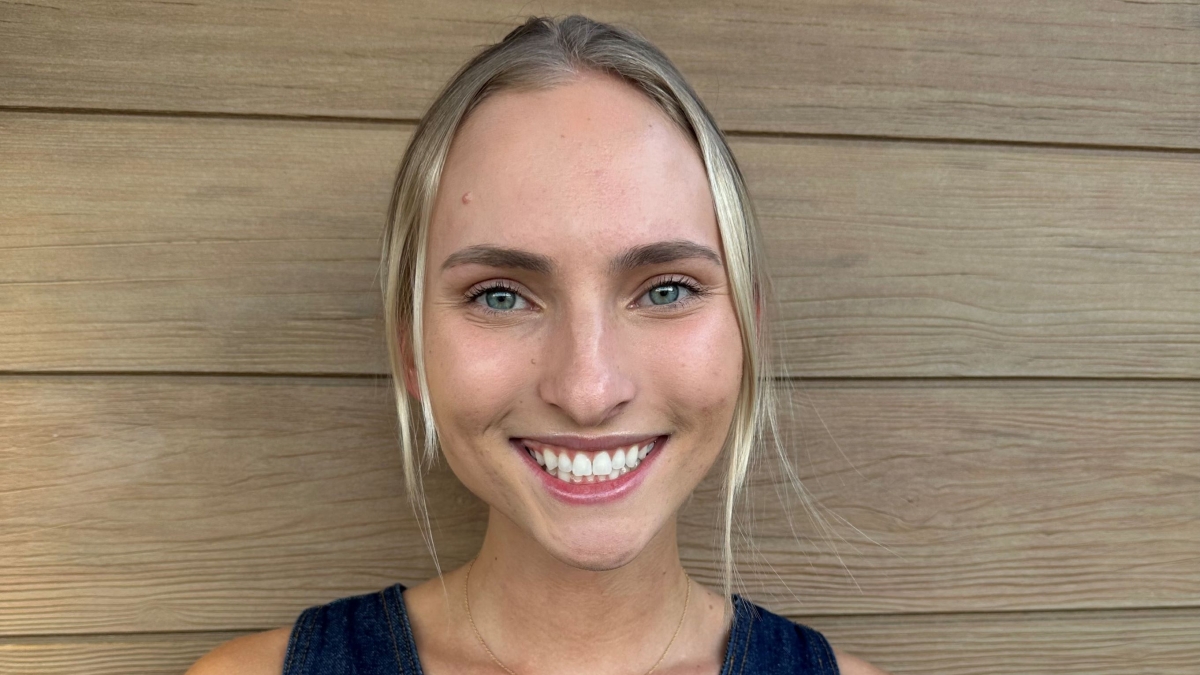
Piper Heiligenstein, courtesy photo
Editor's note: This story is part of a series of profiles of notable fall 2023 graduates .
Piper Heiligenstein’s undergraduate experience at Arizona State University was a combination of academics, adventure, prestigious research opportunities and personal autonomy.
Heiligenstein will graduate in December with a bachelor’s degree in biological sciences from The College of Liberal Arts and Sciences, a certificate in biomedical research from the New College of Interdisciplinary Arts and Sciences and honors from Barrett, The Honors College at ASU.
She took her first-ever international trip to Germany as the recipient of the DAAD RISE scholarship in the summer of 2022, where she was an intern at Kiel University working as a laboratory research assistant all week and traveling to neighboring countries on weekends.
“The most interesting moment in my ASU career was in the summer of 2022 when I traveled and lived across the ocean by myself for a summer for the DAAD RISE scholarship,” said Heiligenstein, who is from Trenton, Illinois.
“It was so interesting for me since it was my first time traveling and living alone out of the country. The experience really challenged me in terms of independence, but I was able to meet some really cool people who I still keep in touch with today,” she said.
Heiligenstein followed up her experience in Germany with the Fulbright-MITACS Globalink Research Internship program over the summer of 2023 at McGill University, an English-language public research university located in Montreal, Quebec, Canada, where she spent 12 weeks studying genomics and DNA replication.
As a Barrett student, she completed an honors thesis titled “Deciphering the Essentiality of the Mycobacterium smegmatis PrrAB Two Component System.”
“I believe completing an honors thesis is a huge advantage on graduate school applications. The undergraduate honors thesis process gave me insight into how my future thesis defense process might look like and I also think showing you have tangible experience presenting and defending your own independent work is a key thing graduate admission offices look for,” said Heiligenstein, who plans to pursue a PhD in biomedical sciences with a focus on infectious diseases.
As Heiligenstein, who was an ASU President’s Scholar, wraps up her last undergraduate semester, we asked her to reflect on her time at ASU. Here’s what she had to say.
Question: What was your “aha” moment when you realized you wanted to study the field you majored in?
Answer: There was really no exact moment when I decided to study biological sciences, but I always enjoyed my biology classes in high school the most out of all my classes.
Q: Why did you choose ASU?
A: I chose Arizona State since I wanted to escape the Midwest cold weather and my father graduated from ASU with a bachelor’s degree in English back in 1988.
Q: Why did you choose to be in Barrett Honors College?
A: After I got accepted into Arizona State, I took a tour of the campus and met with then-Barrett Honors College Dean Mark Jacobs . I was really impressed by the college and the guidance and resources the school provided students.
Being a Barrett student enhanced my undergraduate experience by making a massive university feel a lot more like home. I'm from a pretty small town, and Barrett had a community atmosphere I would have missed if I did not join the college. I met almost all of my friends through Barrett.
Q: Which professor taught you the most important lesson while at ASU? What was that lesson?
A: The professor at ASU that taught me the most important lesson is Dr. Susan Holechek , assistant teaching professor in the School of Life Sciences. She taught me that genetics is more than just studying pea plants and inheritance, which led me to working in a microbiology/genetics lab.
Q: What’s the best piece of advice you’d give to those still in school?
A: The best piece of advice I can give to those still in school is don’t be too hard on yourself because everyone around you is just figuring it out as they go as well.
Q: What was your favorite spot on campus, whether for studying, meeting friends or just thinking about life?
A: The Sun Devil Fitness Complex is my favorite spot on campus because I used to work at Shake Smart and I played intramural volleyball for three years.
Q: If someone gave you $40 million to solve one problem on our planet, what would you tackle?
A: If someone gave me $40 million to solve one problem, I would create a nonprofit organization with the purpose of tackling antibiotic resistance, specifically through funding projects related to phage therapy and antibiotic residue in water supplies.
More University news
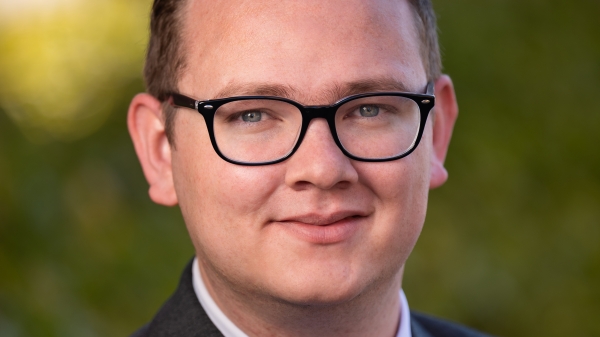
Outstanding Graduate supports HIV research and prevention programs
Editor’s note: This story is part of a series of profiles of notable spring 2024 graduates. Cameron Decker has always been…
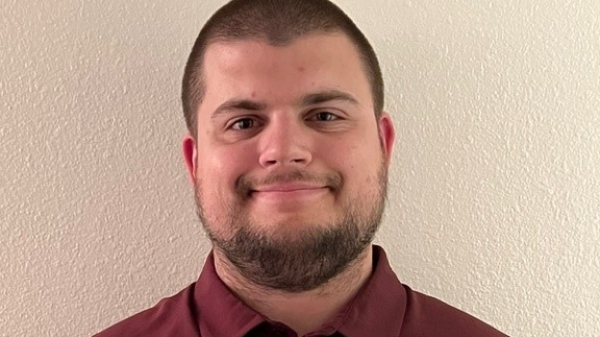
College of Health Solutions grad and veteran doing it all for his family
By Aidan Hansen Editor’s note: This story is part of a series of profiles of notable spring 2024 graduates. His wife and kids…

ASU partners on first-of-its-kind $90M NSF research hub for transformational learning, education research
Access to better data leads to better research. When it comes to data about personalized learning, the more researchers know…

A WORLD OF TRAVEL JOURNALISM AT YOUR FINGERTIPS
Free newsletter subscription.
Travel Research Monthly combs thousands of publications around the world to curate the finest writing, videos, and podcasts for the busy travel professional. A free subscription to the TRM newsletter brings an extensive monthly travel journal directly to your inbox.
First Name *
Email (required) *
ONLY THE WORLD’S BEST
A Travel Research Monthly subscription gives you a free and efficient portal to the finest travel articles, videos and podcasts.
A TRM e-mail journal is designed specifically for the busy travel professional. TRM sifts through all of the travel junk – clickbait, deals, press releases disguised as articles, worthless influencers, pop-ups, malware, narcissistic videos, scams and, most of all, poorly written stories that give no value to the professional advisor – to produce a monthly journal that contains the best writing and video on vacation sites around the world, modes of transportation, and the business of travel. Every link is reviewed and summarized by Kathy Pachman a veteran travel executive who knows what it takes to stay informed without taking time away from your valuable clients. Every month you will receive this journal directly to your inbox and Kathy is always only a click away to hear your feedback.

Meet Kathy Pachman
Hi. I am Kathy Pachman, the founder of Travel Research Monthly. I have had the pleasure of working with many of you as a Destination Expert and during my time as the Vice President of Innovation at Celebrated Experiences.
My love of research started with my BA in History from Emory University, and researching unique experiences for my clients was my favorite part of being a Destination Expert.
When I was working with clients full-time, I found it nearly impossible to keep up with the latest travel insights and information. Even when I found a little time to read, it seemed that I had to spend an hour sorting through all sorts of online travel junk before I found one useful piece of information.
I founded Travel Research Monthly to channel my love of research into solving that problem. We comb thousands of sources every day to uncover the best articles, videos, podcasts, and blog posts to feature in our journal every month. There is a lot of poor content posing as travel journalism and we sift through it all to curate only the very, very best.
We are dedicated to providing the most interesting content to travel professionals to keep you informed so, in-turn, you can provide outstanding service to your valuable clients. I personally review every post in the journal every month to make sure that we deliver consistent quality month after month.
I know how competitive it is out there and I want TRM to give you an edge. Please check out the archive page and, if you like what you see, subscribe to our email journal for free.
I hope you join us and I look forward to working with you.
Thanks for stopping by!

What are you waiting for?
© 2022 Travel Research Monthly
- Skip to Content
- Skip to Main Navigation
- Skip to Search

Indiana University Bloomington Indiana University Bloomington IU Bloomington

Undergraduate Research
- Engaged Learning
- Programs & Funding
- Travel Funding
IUUR and the Office of Engaged Learning offer Travel Scholarships to undergraduate students who are traveling to present their research at a conference and/or to offset travel costs associated with undergraduate research or creative activity.
Visit the Engaged Learning Travel Scholarship page to learn more and apply.
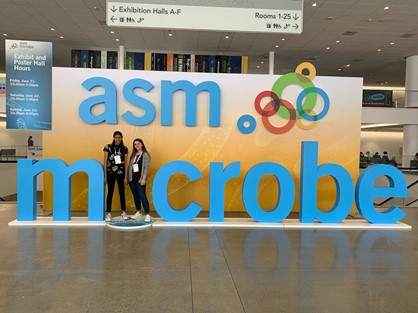
- Mission & Vision
- Research Ambassadors
- Support Engaged Learning
- What is Undergraduate Research?
- Why do Undergraduate Research?
- First Steps
- Graduate Students
- Mentoring Resources
- STEM Summer Research
- Project STEM High School Summer Research Program
- Advanced Summer Research Scholarships
- Federal Work Study Research Assistant Program
- Additional Campus Programs and Resources
- IU Journal of Undergraduate Research
- IU Undergraduate Research Conference
- Summer Posters
- Undergraduate Research Month
- Student Spotlights
- News and Events

International Business Travel To Do List
Rice University maintains an unwavering stance on the importance of academic freedom, transparency, protection of intellectual capital, and international scientific collaboration. The Rice University ecosystem is enhanced and strengthened when people from different parts of the world come together to discuss ideas and generate innovation. The exceptional contributions of foreign collaborators to Rice University teaching and research are indisputable. However, as highlighted by the United States Intelligence Community and Federal Funding Agencies adversarial foreign governments have made a concerted effort to take advantage of such openness to advance their social and economic agendas and have threatened the integrity and academic competitiveness of U.S. research and innovation .
Rice University’s Office of Research Security is providing this Travel To-Do List to assist administrators, faculty, and staff when conducting universally-related foreign travel.
Travel Registration
1. Search the US Department of State (DOS) travel advisory for your region of travel.
2. Search the Corruption Perception Index to reveal the corruption level score associated with your country of travel.
If your country of destination is listed as a:
- DOS Level 3 (Reconsider Travel) or
- DOS Level 4 (Do Not Travel) or
- If the country scores 60 or below on the CPI (designated as Elevated Risk for Corruption),
You will need to register with International SOS to ensure your safety. To register for International SOS, You will need a Rice Membership number to start the process. 11BYSG000011
If the country you're visiting scores 60 or below on the Corruption Perception Index, you will need to review Rice Policy 107 Anti-Bribery and Corruption. Faculty and staff who travel to these countries at least once per year must provide a certificate that they comply with the Anti-Bribery and Corruption policy.
Review Rice Policy 107 for information related to ensuring compliance with the Foreign Corrupt Practices Act (“FCPA”) and other domestic and foreign anti-bribery and anti-corruption laws and regulations.
Search the CDC Travel Health Notices for health-related travel advisories, including recommended vaccinations and precautions.
Report your travel using the Rice University Travel Registry
If you are supported by a federal grant, make sure to check with program officer for any approval or reporting requirements.
Enrolling in STEP helps the US Embassy near your travel location contact you in case of emergencies.
Travel through embargoed countries (Belarus, Cuba, Iran, North Korea, Russia, Syria, Ukraine) may be prohibited. Consult with the Rice Office of Research Integrity to determine specific restrictions.
Travel Preparation
If you are taking an electronic device, consider out a sanitized laptop provided by Rice OIT (POC – CISO Marc Scarborough
If you are taking an electronic device with sensitive, confidential, or research data from DoD, consider obtaining a temporary export-controlled license provided by Rice Office of Research Integrity (POC - Swapna Hegde, Export Controls Research Analyst)
All items you take are an export, including your research data. Contact the Office of Research Integrity for a Temporary Export Letter or License to comply with export control laws.
Research security program will provide a travel briefing after you file your Travel Registry report if traveling to Russia, China, North Korea, and Iran (countries of concern). (POC – Tam Dao, AVP for Research Security)
An export controls research analyst will provide you with a travel briefing following your travel registration.
Consider following the DOS “Assistance for U.S. Citizens” for your destination found under the “Embassies and Consulates” section of your destination
Make copies of passport, driver’s license, and ISOS insurance card
Post-Travel
Upon your return, report any suspicious activity or any lost or misplaced Rice University materials to Rice University research security program (POC – Tam Dao, AVP for Research Security)
Posted 11/30/2023
Helpful Links
Important Addresses

Harvard College
University Hall Cambridge, MA 02138
Harvard College Admissions Office and Griffin Financial Aid Office
86 Brattle Street Cambridge, MA 02138
Social Links
If you are located in the European Union, Iceland, Liechtenstein or Norway (the “European Economic Area”), please click here for additional information about ways that certain Harvard University Schools, Centers, units and controlled entities, including this one, may collect, use, and share information about you.
- Application Tips
- Navigating Campus
- Preparing for College
- How to Complete the FAFSA
- What to Expect After You Apply
- View All Guides
- Parents & Families
- School Counselors
- Información en Español
- Undergraduate Viewbook
- View All Resources
Search and Useful Links
Search the site, search suggestions, alert: harvard yard closed to the public.
Please note, Harvard Yard gates are currently closed. Entry will only be permitted to those with a Harvard ID via Johnston, Thayer, Widener, Sever and Solomon (Lamont) Gates. Guests are not allowed.
Last Updated: April 25, 2:24pm
Open Alert: Harvard Yard Closed to the Public
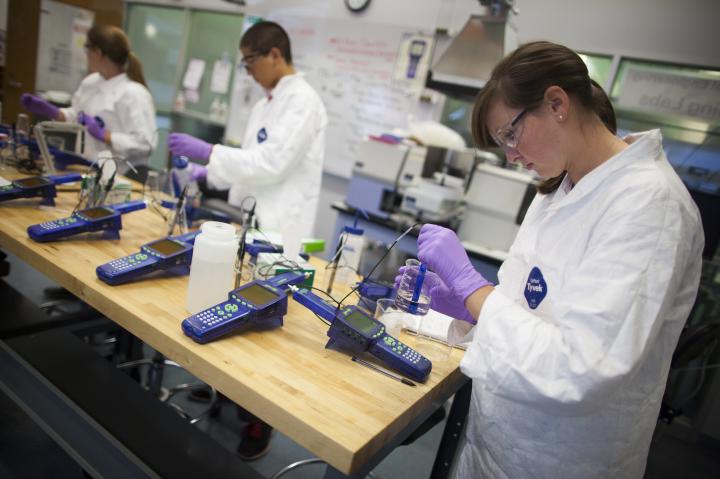
A Guide to Finding Funding
Funding to pursue your passions
We encourage you to explore the many funding resources that are available to you at Harvard in addition to need-based financial aid. The list that follows will give you a sense of the impressive possibilities and point you to resources and next steps. The resources below are grouped into four broad areas: public service, research and learning, international travel, and career opportunities. Dedicated staff members across the College are prepared to help you design your Harvard experience.
Public Service
Over the course of Harvard College’s history, graduates have upheld a commitment to making the world a better place for others. The decision to devote yourself to public interest or government work represents ideals fundamental to Harvard’s mission, and many grants and opportunities for funding can help to make this choice more accessible.
- Center for Public Interest Careers (CPIC) Internships : CPIC focuses on student development, alumni/ae engagement, and partnerships that serve community needs.
- IOP Director Positions : The Institute of Politics (IOP) partners with prominent organizations and elected officials worldwide to provide fully-funded, career-focused summer internships. Internships are available for undergraduate students interested in politics, government, and public service.
- IOP Stipend Positions : The Institute of Politics (IOP) offers funding for rising sophomores, juniors, and seniors to pursue non- or low-paying summer internships in government, public interest, non-governmental organizations, and political organizations and campaigns. International internships must have a government affiliation.
- CPIC: Arthur Liman Public Interest Law Fellowship : This fellowship provides a stipend to selected students working in public interest law positions during the summer.
- Harvard Club Summer Internships : Some Harvard Clubs and Shared Interest Groups raise funds to support student public service projects.
- PBHA Summer Urban Program (SUP) : PBHA’s SUP is a network of 12 community-based summer camps across Boston and Cambridge.
- Mignone Center for Career Success (MCS) Public Service Grants : MCS provides grants for students interested in pursuing a domestic public service opportunity.
- Harvard Public Service Network : The Public Service Network (PSN), affiliated with the Phillips Brooks House, encompasses over 45 programs. These programs offer opportunities for students to work alongside community organizations and schools that provide health, educational and advocacy services.
- Presidential Public Service Fellowship Program (PPSF) : Harvard’s PPSF program supports a broad range of summer-long opportunities that serve the common good.
Research and Learning
At Harvard, you’ll have opportunities to conduct research alongside world-renowned faculty. Whether you choose to embark on your own research or assist with a faculty project, funding as available.
- The Undergraduate Research and Fellowships Office (URAF) is Harvard College’s hub for undergraduate research grants. URAF administers ten research programs of its own and hosts a comprehensive database of opportunities. The office also provides tips for finding opportunities, writing applications, and securing funding.
- The Faculty Aide Program is a good place to start. This program subsidizes up to $1,500 in student wages as a way to encourage professors to hire undergraduate research assistants.
The following list highlights some of the many research grants and opportunities available.

Summer Residential Research Programs
Students who participate in these programs receive room and board to live on campus during the summer as a part of a vibrant research community.
- PRISE – Harvard College Program for Research in Science and Engineering
- BLISS – Harvard College Building Learning through Inquiry in the Social Sciences
- PRIMO – Harvard Business School/Harvard College Program for Research in Markets and Organizations
- SHARP – Summer Humanities and Arts Research Program
- Harvard Amgen Scholars Program
- PCER - Program in Community Engaged Research
- SURGH - Summer Undergraduate Research in Global Health
- SPUDS - Summer Program for Undergraduates in Data Science
- FAS Center for Systems Biology Undergraduate Summer Internship
Research Experience for Undergraduates (REU)
- FAS Center for Systems Biology
- Harvard Smithsonian Astrophysical Observatory Research Experience for Undergraduates Program
- SEAS Research Experience for Undergraduates
Domestic Research Funding
- HCRP - Harvard College Research Program
- Center for American Political Studies
- Charles Warren Center for American History
- Committee on Ethnicity, Migration and Rights
- Harvard Center for the Environment
- Harvard Forest Summer Program
- Harvard Stem Cell Institute
- Herchel Smith Undergraduate Science Research Program
- Mind, Brain and Behavior
- Microbial Sciences Initiative
- Museum of Comparative Zoology
- Saloma Fund for Government
International Research Funding
- Asia Center
- Center for Hellenic Studies
- Center for Jewish Studies
- Davis Center
- Korea Institute
- Harvard College Research Program
- Harvard Global Health Institute: International Internship in Global Health and Summer Undergraduate Research
- South Asia Institute
- Ukrainian Research Institute
- Weatherhead Center for International Affairs
International Travel
International study is an enriching experience, but financing study abroad can seem daunting. Funding is available for many options, including study at a foreign university, participation in humanitarian relief efforts, and internships.
There are different ways to include an international experience into your Harvard career. Students who receive grant assistance from Harvard can transfer their financial aid to an approved term-time study abroad program. You'd prefer to do a summer program? The Harvard Summer School may be able to help. Or you could design your own travel experience during summer or winter break. However you choose to do it, funding can make international study experiences possible.
Start your search at the Mignone Center for Career Success (MCS) and the Office of International Education . Below you'll find a selection of offices and programs that offer grants for international travel, organized by location.
- Center for African Studies
- Edwin O Reischauer Institute of Japanese Studies
- Fairbank Center
- Harvard China Fund
- Center for European Studies
Latin America and Caribbean
- David Rockefeller Center for Latin American Studies
Middle East and North Africa
- Center for Middle Eastern Studies
Multiple Locations
- FXB Field Education Internship Program
- Romance Languages and Literature – Dressler and Diaco grants
- Weissman International Internship Program
- Harvard Alumni Association Spring Break Trips
Career Opportunities
Whether you are looking for a term-time job, trying to secure a summer internship, or are exploring potential career paths, we’re here to help.
- Student Employment Office (SEO) Jobs Database : On- and off-campus employers list summer and term-time jobs on the SEO Jobs Database. You can use this database to browse opportunities and apply to full-time, part-time, and intermittent jobs.
- Federal Work-Study Program (FWSP) : If you are eligible for FWSP (check your financial aid letter), this program can subsidize your wages for jobs, making you a better candidate.
- Mignone Center for Career Success (MCS) : MCS is your hub for programs and resources to help you explore careers, find jobs, and investigate graduate school options.
- Crimson Careers Database : This database is available to current students and alumni who want to find opportunities or post available positions.
- Harvard Alumni Association (HAA) : The HAA maintains and enhances an engaged, vibrant community of alumni and friends worldwide.
- Harvard Student Agencies (HSA) : HSA provides Harvard students with meaningful opportunities for employment and hands-on business education.
- Global Networking Night : This biennial event brings alumni together for a fun networking event.
- January ‘Winternships' : Many students use Wintersession (the week before spring term begins) to pursue an internship in a field that interests them.
Opportunities After Graduation
Seniors may consider applying for fellowships and scholarships to fund graduate study, travel, public service, research, and other experiences after graduation. The Office of Undergraduate Research and Fellowships (URAF) administers both Harvard-specific and national opportunities and helps advise students exploring the wide of array of possibilities. Learn more about postgraduate funding opportunities on URAF’s website .
Related Topics
As a college within a research university, Harvard undergraduates have access to unparalleled research opportunities. Learn about research at Harvard.
From physical spaces to funding, Harvard provides the support for students to follow their curiosity as they investigate and explore their world.
Additional Funding & Procedures
Request a reconsideration, a student or parent loan, a refund, emergency expenses, computer loan, and more.
Returning to International Travel
Undergraduate student and group graduate/professional student university-sponsored and supported international travel is suspended through the fall 2021 semester.
Starting August 1, 2021, faculty, staff and graduate/professional students (on an individual basis) may resume university-sponsored and supported international travel in accordance with the university’s standard international travel policy. Details can be found at https://global.wustl.edu/resources/university-international-travel-policy-update/ .
Further guidance for School of Medicine travelers can be found at https://covid19.med.wustl.edu/policies/travel-policy/ .
All travel is subject to changes in travel conditions and public health guidance.
Contact [email protected] with any questions.
University Guidance
See the University’s travel guidance and FAQs .

Announcing Summer 2024 Center for Middle East Studies Research Travel Award Recipients
April 25, 2024

Graduate Research Travel
Adel Ben Bella (MCM) Arif Erbil (History) Hosna Salari Sardari (History of Art and Architecture) Amelle Zerou g (History) Gabriel Zuckerberg (Music)
Undergraduate Research Travel
Aboud H. Ashhab ‘25, a third-year student concentrating in History and IAPA, will be writing an honor history thesis on conscription in Syria during the Egyptian Occupation from 1831-1841. His work will specifically examine how policies of conscription influenced the political consciousness of minority religious groups.
STUDENT TRAVEL AND RESEARCH FUNDING IS MADE POSSIBLE THROUGH A GENEROUS GIFT FROM THE SAMS FAMILY
Previous recipients.
Fall 2014 MES Research Travel Award Recipients Spring 2015 MES Research Travel Award Recipients Spring 2016 MES Research Travel Award Recipients Spring 2017 MES Research Travel Award Recipients Spring 2018 MES Research Travel Award Recipients Fall 2018 MES Research Travel Award Recipients Spring 2019 Research Travel Award Recipients Fall 2019 Research Travel Award Recipients Spring 2022 Research Travel Award Recipients Spring 2023 Research Travel Award Recipients
ABOUT MIDDLE EAST STUDIES RESEARCH TRAVEL AWARDS
Up to $1,000 for Middle East studies undergraduate concentrators Up to $1,500 for Middle East studies graduate students
- Priority is given to undergraduate students concentrating in Middle East studies using the funds towards research for the senior Capstone or Honors Thesis
- Students in concentrations other than Middle East studies but with Middle East-related research will be considered
- Graduate applicant support is based on travel focused specifically on conducting research for their dissertations
- Travel is not limited to the Middle East. However, applicants must be conducting research on the Middle East
MORE INFORMATION ON MIDDLE EAST STUDIES RESEARCH TRAVEL AWARDS

Study Abroad Aide
The Best Study Abroad Site
25 Best Universities In Moscow For International Students 2024
Moscow is surely one of the places you should be considering if you’re looking to study in Russia . This location has a lot to offer for international students, including world-class universities and exciting student experiences. With more than 59 universities and colleges in Moscow, you’ll surely have a wide range of choices.
Out of 59 universities in Moscow , RUDN University and Moscow State University are the top-performing schools in Moscow. This list covers both public and private institutions in Moscow.
To help you narrow down your school options, we’ve compiled the best universities in Moscow. We based our rankings on academic reputations from reputable sources and the number of international students. By doing this, you’ll have an efficient way of comparing your target universities and choose your host university in Moscow.
How do I get admission to the best universities in Moscow?
Applying to the universities in Moscow involves submitting requirements and following specific admissions procedures set by your chosen university. The requirements often include a student visa, application packages, and language scores. Check out our guide for international students who want to study in Moscow to learn more about applying for admission in this country’s universities!
How much are the tuition fees at the best universities in Moscow?
Tuition fees at Moscow’s universities can vary depending on which university, degree, and program you will be enrolling in. Generally, tuition fees for the bachelor’s level range from 0 RUB to 730,000 RUB , while tuition fees for the master’s level range from 0 RUB to 870,000 RUB. If you are interested, check out the affordable universities in Moscow !
As we cover the best universities in Moscow for international students, feel free to check out the university’s information on Admission, Tuition, Courses, and Language Requirements by looking at the individual university pages.
Top Universities in Moscow for International Students
1 rudn university.
RUDN University is one of the best universities in the capital city of Russia and is known as The People’s Friendship University of Russia. This higher education institution is mostly known for the high number of international students attracted to this university’s high ranking. The university is ranked among the world’s top 500 universities, which speaks volumes about the level of study this university provides.
2 Moscow State University
Moscow State University is one of the largest public universities in Moscow, Russia. This university is the cornerstone of formal higher education, and it provides education to close to 40,000 students. Some of the most attended programs are in the fields of economics, politics, and finance, where students gain real-world experience that may help them in their careers.
3 National Research Nuclear University MEPhI
The National Research Nuclear University MEPhI is one of the world’s most prestigious universities in its field and the perfect place for candidates that would like to specialize in nuclear technology. It focuses on fostering innovation, creativity, and internationalization. The university is known for its wide and highly specialized degree offer and its outstanding research performance. It has multiple institutes that develop studies in areas like nanoengineering, cyber-physical systems, and plasma technologies. These projects are completed in state-of-the-art facilities that include a research nuclear reactor and an accelerator.
4 National Research University Higher School of Economics
The National Research University Higher School of Economics, or otherwise known as HSE University, is one of the best universities of higher education in the capital city of Russia. This institution has one of the largest campuses in the country that houses approximately 50,000 students and can provide them with all the necessary equipment for them to have the best possible experience.
5 National University of Science and Technology MISIS
The National University of Science and Technology MISIS started as a mining academy and then became a steel institute. Over time, it expanded its course offer and modernized its facilities, but it’s still widely known for its programs in metallurgy and mining. Nowadays, the university has six campuses, 8 academic colleges, and multiple research institutes. They also have cutting-edge specialized laboratories in fields such as nanomaterials, cryoelectronic systems, biophysics, casting technologies, and much more!
6 I.M. Sechenov First Moscow State Medical University
I.M. Sechenov First Moscow State Medical University or usually referred to as Sechenov University was founded in 1758, making it the oldest medical school in Russia. It was initially the medical faculty of the Imperial Moscow University and eventually became independent in 1930. At present, the university has more than 18,000 total enrollment and offers undergraduate to Ph.D. programs in Medicine, Sciences, and Professional Education.
7 Plekhanov Russian University of Economics
The Plekhanov Russian University of Economics is a public university with over a century’s history of world-class economics and management education. Programs at the university are strongly focused on practical learning and provide opportunities for students to gain professional and international experience with its numerous partner employers around the world. The university also conducts several initiatives and projects that aim to address different educational, industrial, and social issues.
8 Russian Presidential Academy of National Economy and Public Administration
The Russian Presidential Academy of National Economy and Public Administration is a very young institution of higher education located in the capital city of Russia. This university has grown in popularity in the region, and it now has over 46,000 students studying in various fields. Despite its youth, this university is ranked among the top 801 universities in the world by the prestigious QS World University Rankings.
9 Bauman University
Bauman University is one of the oldest and most prestigious universities in Russia. It specializes in education and research in applied sciences and engineering. The university boasts excellent programs for all levels of higher education and is home to some of the most advanced scientific laboratories and facilities in the country.
10 Financial University under the Government of the Russian Federation
Ranked among the best universities in Russia and the world, the Financial University under the Government of the Russian Federation is a specialized institution that aims at contributing to the country’s economic development and financial transformation. This is a prestigious university known for being the educational home of many important Russian figures including prominent politicians, millionaires, and CEOs of important companies. It focuses on providing hands-on learning and encouraging critical thinking by using methods like case studies, discussions, and financial projects. It also has partnerships with governmental bodies and major businesses in order to offer workshops, academic collaborations, and internship opportunities.
11 N.R.U. Moscow Power Engineering Institute
N.R.U. Moscow Power Engineering Institute is a public technical university in Moscow with a prominent reputation for producing outstanding scientists and engineers for more than 90. It is also one of the most sought-after universities for aspiring engineers from around the world. The university also has numerous cooperation agreements with foreign universities and companies for its students and faculty to participate in different international programs and activities.
12 Moscow State Pedagogical University
Moscow State Pedagogical University is a Russian higher education institute that offers Bachelor’s, Master’s, and Doctoral programs. It was established as the Women’s Courses of Higher Education in 1872 and underwent a transformative journey to what it is now. The university is well-recognized with International Partners across the globe, such as the University College of Teacher Education Vienna in Austria, the University of Pardubice in the Czech Republic, and the CY Cergy Paris University in France. Accessibility is a forefront advocacy with dedicated institutes for it, such as the Center for Student Disability Services and Psychological Assistance Center.
13 Mendeleev University of Chemical Technology of Russia
The Mendeleev University of Chemical Technology of Russia is the largest institution that offers education, training, and research in chemical technology in the country. The university was established in 1898 and is dedicated to raising future engineers and specialists who can formulate solutions to the most pressing scientific, industrial, and societal problems. It is also the alma mater of several notable individuals with significant contributions to different branches of science and chemistry.
14 Russian National Research Medical University
Pirogov Russian National Research Medical University (RSMU) is a private university specializing in medicine located in Moscow, Russia. It was founded in 1906 as the Higher Medical Course for Women. Among the programs available at the university are general medicine, pediatrics, biochemistry, dentistry, pharmacy, social work, psychology, neuroscience, and radiology.
15 Moscow State Institute of International Relations
The Moscow State Institute of International Relations is one of the most prestigious and elite universities in Russia and the world, making it the perfect place for studying anything related to diplomacy, economics, international affairs, or languages. This institution strives for internationalization, which is why it has partnerships with multiple universities worldwide with which it offers dozens of double and triple degrees. It has different research institutes that develop studies in diplomacy, governance, energy policy, and global matters. Additionally, it constantly collaborates with international organizations and local governmental bodies.
16 Moscow Aviation Institute
Moscow Aviation Institute is an aviation school that offers Bachelor’s, Master’s, and Postgraduate level programs. Both the Russian and English languages are used as mediums of instruction. Aside from these university programs, Pre-university and Professional training programs are also offered. Nine dormitory options filled with quality service facilities are present for student residents. Three Metro stations are also near the campus, providing sufficient access for students with no personal vehicles.
17 Gubkin Russian State University of Oil and Gas
The Gubkin Russian State University of Oil and Gas is a specialized institution of higher education. This institution mostly focuses on developments in the field of oil and gas extraction and the safety of this direction. The main attraction for students is the affordable tuition prices for top-of-the-crop programs that are taught by experts in the relevant fields.
18 Russian State Social University
The Russian State Social University is a distinguished university in the country of Russia because it provides all levels of study to both domestic and international students with the opportunity to gain various financial aid through university or state-funded scholarships. This university is located in Moscow and was founded in 1991, but it is making its way slowly toward the ranking of the best universities in Russia.
19 Moscow Polytechnic University
Established in 1865, Moscow Polytechnic University, or Moscow Poly, is one of Russia’s educational institutions that provide technology-related programs. Currently, they deliver education to more than 16,000 local and international students. As they provide top-quality education and research in various fields, they also have various activities on campus to foster diversity.
20 Synergy University
Synergy University was established in 1988 and is one of the top business schools in Russia. The university’s programs are focused on providing strong fundamental knowledge of different principles, theories, and concepts and combining it with experiential learning to develop its students’ skill sets, thereby preparing them for the professional world. Synergy University has a student population of over 65,000 and has international campuses and branches in Dubai, London, United Arab Emirates, and New York.
21 National Research University of Electronic Technology
The National Research University of Electronic Technology is a public university that offers undergraduate and graduate-level education. In total, there are 40 Bachelor’s programs and 42 Master’s programs. It was founded in 1965 and was only officially renamed to its current title in 2011. Annual enrolment is estimated to be 4500 students, and over 600 academic staff are present to handle them. Not only do other universities partner with the National Research University of Electronic Technology, but over 131 corporations also cooperate with it.
22 Russian State University of Physical Culture, Sport and Tourism
Russian State University of Physical Culture, Sport, and Tourism is a leading sports university in Russia. It was established in 1918 and is known for producing over 200 outstanding athletes that have made their marks in prestigious international competitions such as the Olympics. The academic and research programs at the university are conducted by highly qualified and reputable coaches, experts, and scientists to further enhance athlete training and prepare future sports champions and professionals.
23 Moscow City Teachers’ Training University
Moscow City Teachers’ Training University is a public university in Moscow, Russia. The Ministry of Education established it in 1995 as a pedagogical university, with only 1300 students in its first year. The university currently has over 18,000 students and offers degree programs in the humanities, natural sciences, sports technology, law, business, and language studies.
24 New Economic School
The New Economic School (NES) is a private institution located in Moscow that focuses on teaching and research in the field of economics. It takes pride in having a faculty made up of established professionals from the field, most of them holding a Ph.D. NES aims to train students who will be able to make valuable contributions to the growth of Russian society and business.
25 State University of Management
The State University of Management has been a frontrunner in providing management education in Russia for over 100 years. The university offers practice-oriented management education and training in different specializations such as business informatics, hotel management, and advertising. The State University of Management also conducts intensive research and innovative projects aimed at improving its academic programs and responding to the needs of the country’s economy.
We know that choosing your dream school in Moscow not an easy task. After all, you need to consider other factors like the cost of your education, school background, and population, as it can be overwhelming on your part.
So, to help you out further in weighing your school options for studying in Moscow , make sure to visit our list of the best public and private universities in Moscow! These articles will surely help you in deciding your next study destination!
You are using an outdated browser. Please upgrade your browser to improve your experience. Thanks!

- TRAVEL POLICIES
- CONCUR PROFILE
- CONCUR TRAINING
- TRAVEL MANAGEMENT COMPANY
- UNIVERSITY TRAVEL POLICY
- CREDIT CARD TRAINING
- STATE NON-EMPLOYEE (NET) CARD
- STATE TRAVEL CARD
- RF GUIDELINES
- NON-EMPLOYEE TRAVEL
- CREDIT CARD
- TAX EXEMPTION
- CONCUR TRAVEL
- CONCUR REGISTRY LANE
- STATE PROCUREMENT CARD
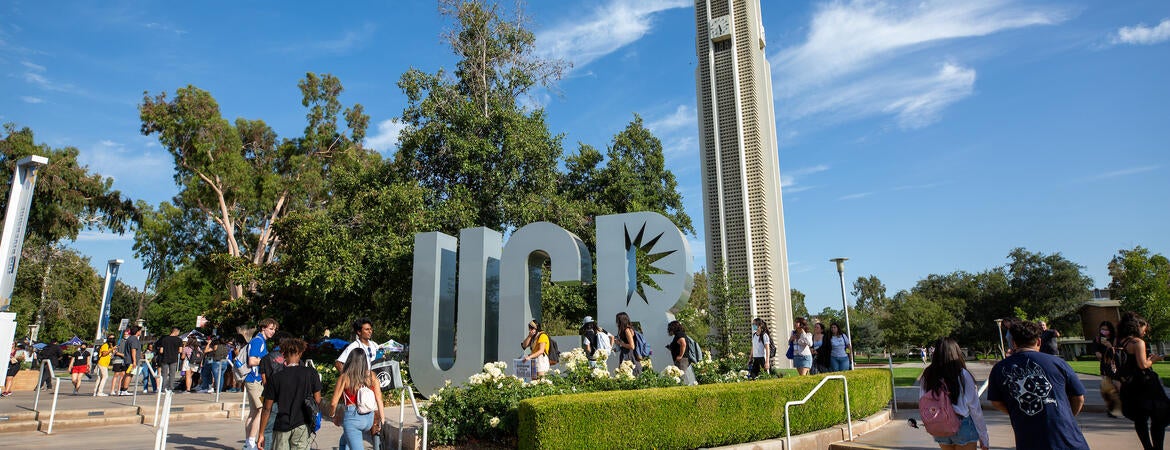
UCR joins group of leaders in tech partnerships, innovation
The Association of Public and Land-grant Universities has 80 Innovation & Economic Prosperity member universities
In recognition of UC Riverside’s commitment to economic engagement, the Association of Public and Land-grant Universities, or APLU, has designated UCR as an Innovation & Economic Prosperity, or IEP, university. The national designation acknowledges public research universities that support economic development through innovation and entrepreneurship, technology transfer, talent and workforce development, and community development.
UCR is now one of 80 IEP universities.
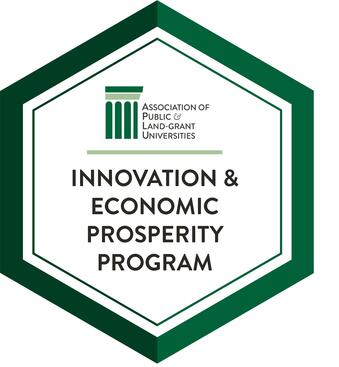
“We join a select group of universities in the nation, including our sister campuses of UC Davis, UC Los Angeles, and UC San Diego,” said Rodolfo Torres, UCR’s vice chancellor for Research and Economic Development, or RED. “UCR is already recognized by our regional stakeholders as an engine for innovation and economic prosperity in Inland Southern California, and it is great to be recognized by our peer universities in APLU too."
Torres said SoCal OASIS™ is key to the successful IEP application. SoCal OASIS™, which is an overarching initiative including a technology hub and numerous programmatic activities, is RED’s primary mechanism for building innovation and economic development in the Inland Southern California region.
Rosibel Ochoa, associate vice chancellor in the Office of Technology Partnerships, said the designation “has cemented UC Riverside's position as a leader in technology innovation and entrepreneurship. It is a culmination of more than eight years of hard work and dedication from the university and its partners.”
The designation comes after an independent panel reviewed UCR’s application, which included an internal review of economic engagement activities, as well as input by outside stakeholders. The application required a self-study to identify areas of strength and develop a growth and improvement plan.
Applications for the designation are evaluated by a panel of reviewers representing other universities and regional and national partners. Scoring was based on criteria emphasizing universities’ development of their economic engagement enterprise, strategic communications around these efforts, and advancement of economic engagement among peer institutions.
The designation is five years in duration, after which IEP universities can be recertified by summarizing five years of “reflection memos.” At 10 years, institutions complete the same extension application, along with presenting a new growth and improvement plan. The sequence repeats every five and 10 years.
The distinction complements two designations UCR has received in the past year that similarly raise the university’s academic profile, while positioning UCR for new funding opportunities, awards, and networking opportunities. In June 2023, UCR was invited to join the prestigious Association of American Universities , or AAU, which includes the 71 top research universities in the nation. In January, UCR received the 2024 Carnegie Elective Classification for Community Engagement .
The APLU is a research, policy, and advocacy organization dedicated to strengthening and advancing the work of public universities in the U.S., Canada, and Mexico. The organization has as members more than 250 public research universities, land-grant institutions, state university systems, and affiliated organizations.
Media Contacts
Related articles.
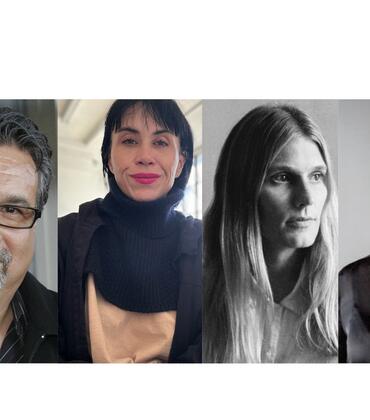
UCR celebrates 4 Guggenheim fellows
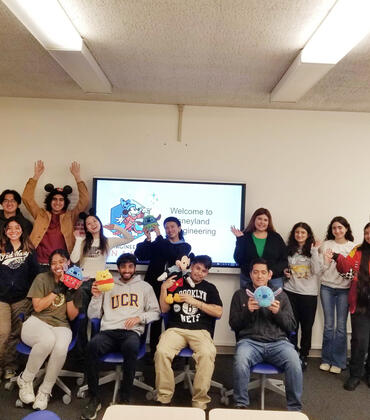
From Disney make-believe to reality
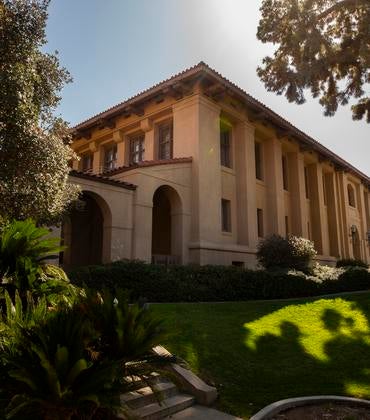
School of Business graduate program surges in top rankings
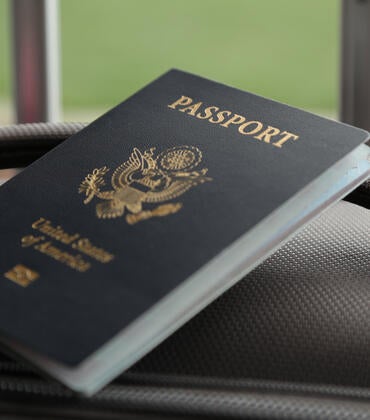
Have career goals. Will travel.

University of Massachusetts Amherst: SPHHS Announces 2024 Research Day Award Winners
The School of Public Health and Health Sciences (SPHHS) held its annual Research Day on April 17 in the Campus Center Auditorium. Now in its 27 th year, SPHHS Research Day is a showcase for the research and practice conducted by students in all of its departments. Undergraduate and graduate students, as well as postdoctoral researchers, are invited to present their work to faculty, staff, peers and the broader community.
This year’s event included two separate sessions comprised of a total of 102 poster presentations. Participants spanned all departments and academic levels – including undergraduate, master’s and doctoral presenters – and served to highlight the depth and breadth of SPHHS student research. The day’s program also featured a keynote talk from biostatistics alumnus Mark Chang ’98 M.S., Ph.D. and faculty presentations by Christine St. Laurent, Song Liang and Chaoran Ma.
“Yesterday’s event was spectacular,” says Anna Maria Siega-Riz, SPHHS dean. “The enormous participation by our students and faculty exceeded our expectations. It was an amazing display of the far-ranging research being done in the school by our faculty and the students who they are mentoring in their labs. I know that this type of mentoring and excellence in research takes time and, for many faculty, it is this passion that keeps them here.”
“Research Day 2024 was a great showcase for the outstanding work of students and faculty mentors in SPHHS, and the incredible diversity of research all aimed at addressing health and wellbeing,” adds Brian Whitcomb, SPHHS associate dean of research. “Many thanks to the students – over 102! – who presented their work at the event. Thanks and gratitude, also, to members of the Research Committee, faculty judges and SPHHS staff whose contributions to organization and coordination were critical to the success of this year’s ambitious, exciting, expanded program.”
The student presenters participated in a faculty-juried poster session based on content and presentation. This year, SPHHS awarded a total of eight prizes: travel awards for best presentation in health sciences and in public health; three graduate student research awards; and three undergraduate student research awards.
The 2024 Research Day Travel Award winners were:
- First place Research Category – Health Sciences: Brent Momb, doctoral student in kinesiology. “Distinct skeletal muscle fiber-type contractile response to fatigue at 37°C in older adults.” Faculty sponsor: Mark Miller.
- First place Research Category – Public Health: Chi Zhao, doctoral student in biostatistics and epidemiology. “Associations of combined genetic and lifestyle risks with incident type 2 diabetes in the UK Biobank.” Faculty sponsor: Cassandra Spracklen.
The 2024 Research Day Graduate Student Poster Award winners were:
- First place: Barbara E. Mottey, doctoral student in environmental health sciences. “4 years trend in find particular matter (PM2.5) and black carbon pollution in Accra, Ghana.” Faculty sponsor: Raphael Arku.
- Second place: Carissa Lange, doctoral student in environmental health sciences. “Characterizing air and noise pollution within the Accra School Health and Environment Study (ASHES).” Faculty sponsor: Raphael Arku.
- 3rd place: Rachel Wacks, doctoral student in biostatistics and epidemiology. “Preliminary results on the joint effect of maternal smoking patterns during pregnancy and pre-pregnancy BMI on infant birth outcomes.” Faculty sponsor: Cassandra Spracklen.
The 2024 Research Day Undergraduate Student Poster Award winners were:
- First place: Sean T. Bannon, kinesiology. “Hyperthermia treatment attenuates diet-induced obesity and insulin resistance in old female and ovariectomized mica var TRPV1-mediated futile calcium cycling.” Faculty sponsor: Soonkyu Chung.
- Second place (tie): Molly Fabrizio and Aaryan Chaudhry, mechanical engineering and biochemical engineering. “Neural investigation of exoskeleton-assisted walking.” Faculty sponsor: Douglas Martini.
- Second place (tie): Abigail Grimm, public health sciences. “Examining bullying, social support, and mental health outcomes among transgender and genderqueer adolescents.” Faculty sponsor: Elizabeth Bertone-Johnson.
- Third place: Rakan Rafat Rihani, kinesiology. “Running economy in steep uphill locomotion: the impact of shoes with and without embedded carbon fiber plates.” Faculty sponsor: Wouter Hoogkamer.
University of Massachusetts Amherst Opens Applications for Instructional Innovation Fellowship
University of Massachusetts Amherst Center for Teaching & Learning Reveals 2024-25 Lilly Fellows for Teaching Excellence
University of Massachusetts Amherst Center for Teaching & Learning Reveals…
University of Massachusetts Amherst Opens Applications for Instructional Innovation…
Three UMass Amherst Doctoral Students Awarded 2024 Mellon/ACLS Dissertation…
UMass Amherst Doctoral Researcher Lectures on Data-Driven Decision-Making, Judges…
Welcome, Login to your account.
Recover your password.
A password will be e-mailed to you.

- Mission and Vision
- Ratings and Rankings
- Awards and Achievements
- Geography of Training and Student Feedback
- News and Events
- Governance and Structure
- Accreditation
- Administrative Policies
- How to Apply
- Preparatory Courses
- Programs and Degrees
- Readmission
- Recognition of Foreign Education
- Tuition & Fees
- Invitation for a Visa
- Accommodation
- Bachelor and Specialist Degree Programs
- Master Degree Programs
- Clinical Residency
- Continuing Medical Education
- Faculties and Schools
- Academic Mobility and Exchange Programs
- Lectures of Leading Specialists
- Our Research
- Publications
- Research Centers
- Pre-Clinical Trials
- Clinical Trials
- Research Journal
- Student Scientific Society
- University Innovative Company "Exoplast"
- Student Organizations
- Sport & Recreation
- Student Support
- University Center for Psychological Care
- Student Transfer
- Schedules of Classes and Exams / Course materials
- Video Lectures
- Student Scholarships and Awards
- Request for a Certificate On-line
- Alumni Association
- Research Services
NEWS Pirogov Medical University

International Pirogov Scientific Medical Conference

University staff visited an educational exhibition in Samarkand

“My opponent is the me from last year” says the first participant of the intership program for foreign practicing doctors at leading medical and scientific centers of Russia, Nairi Melkonyan, a doctor from Armenia
At the end of 2023, INTERDOCTOR: a project implemented by Ministry of Health of the Russian Federation and Pirogov Russian National Research Medical University, had begun. The first participant was Doctor Nairi Melkonyan, a...

Emerging technologies: advancing rehabilitation projects
Yana Olegovna Grigoryeva and Irina Igorevna Karpeeva , delegates from the Pirogov Russian National Research Medical University's international department under the auspices of Russia's Ministry of Health, took an active part...

Representatives of the Embassy and of the Consulate General of the I. R. of Iran met with students at Pirogov Russian National Research Medical University

RNIMU Staff at International Educational Events in Hanoi

RNIMU presented the first 'Time to Study in Russia' Education Expo in the United Republic of Tanzania

RNIMU at the International Book and Education Fair in Belgrade

Preparatory Courses Invite Future Applicants
TRAINING IN RUSSIAN, CHEMISTRY AND BIOLOGY.

Admission for International Students

Less alcohol, or none at all, is one path to…
Share this:.
- Click to share on Facebook (Opens in new window)
- Click to share on X (Opens in new window)
Daily e-Edition
Evening e-Edition
- Entertainment
- Restaurants, Food & Drink
News Health
Less alcohol, or none at all, is one path to better health.

By CARLA K. JOHNSON (AP Medical Writer)
It’s wine time. Beer Thirty. Happy hour. Five o’clock somewhere.
Maybe it’s also time to rethink drinking ?
Moderate drinking was once thought to have benefits for the heart, but better research methods have thrown cold water on that.
“Drinking less is a great way to be healthier,” said Dr. Timothy Naimi, who directs the Canadian Institute for Substance Use Research at the University of Victoria in British Columbia.
ARE DRINKING GUIDELINES CHANGING?
Guidelines vary a lot from country to country but the overall trend is toward drinking less.
The United Kingdom, France, Denmark, Holland and Australia recently reviewed new evidence and lowered their alcohol consumption recommendations. Ireland will require cancer warning labels on alcohol starting in 2026.
“The scientific consensus has shifted due to the overwhelming evidence linking alcohol to over 200 health conditions, including cancers, cardiovascular diseases and injuries,” said Carina Ferreira-Borges, regional adviser for alcohol at the World Health Organization regional office for Europe.
From Dry January to Sober October to bartenders getting creative with non-alcoholic cocktails , there’s a cultural vibe that supports cutting back.
“People my age are way more accepting of it,” said Tessa Weber, 28, of Austin, Texas. She stopped drinking for Dry January this year because she’d noticed alcohol was increasing her anxiety. She liked the results — better sleep, more energy — and has stuck with it.
“It’s good to reevaluate your relationship with alcohol,” Weber said.
WAIT, MODERATE DRINKING DOESN’T HAVE HEALTH BENEFITS?
That idea came from imperfect studies comparing groups of people by how much they drink. Usually, consumption was measured at one point in time. And none of the studies randomly assigned people to drink or not drink, so they couldn’t prove cause and effect.
People who report drinking moderately tend to have higher levels of education, higher incomes and better access to health care, Naimi said.
“It turns out that when you adjust for those things, the benefits tend to disappear,” he said.
Another problem: Most studies didn’t include younger people. Almost half of the people who die from alcohol-related causes die before the age of 50.
“If you’re studying people who survived into middle age, didn’t quit drinking because of a problem and didn’t become a heavy drinker, that’s a very select group,” Naimi said. “It creates an appearance of a benefit for moderate drinkers that is actually a statistical illusion.”
Other studies challenge the idea that alcohol has benefits. These studies compare people with a gene variant that makes it unpleasant to drink to people without the gene variant. People with the variant tend to drink very little or not at all. One of these studies found people with the gene variant have a lower risk of heart disease — another blow to the idea that alcohol protects people from heart problems.
HOW MANY DRINKS CAN I HAVE PER DAY?
That depends.
Drinking raises the risk of several types of cancer , including colon, liver, breast and mouth and throat. Alcohol breaks down in the body into a substance called acetaldehyde, which can damage your cells and stop them from repairing themselves. That creates the conditions for cancer to grow.
Thousands of U.S. deaths per year could be prevented if people followed the government’s dietary guidelines, which advise men to limit themselves to two drinks or fewer per day and women to one drink or fewer per day, Naimi said.
One drink is the equivalent of about one 12-ounce can of beer, a 5-ounce glass of wine or a shot of liquor.
Naimi served on an advisory committee that wanted to lower the recommendation for men to one drink per day . That advice was ignored when the federal recommendations came out in 2020.
“The simple message that’s best supported by the evidence is that, if you drink, less is better when it comes to health,” Naimi said.
The Associated Press Health and Science Department receives support from the Howard Hughes Medical Institute’s Science and Educational Media Group. The AP is solely responsible for all content.
More in News

SUBSCRIBER ONLY
Health | unsheltered people are losing medicaid in redetermination mix-ups.

Tourism | Disney Springs Patina Restaurant employees announce unionization campaign

West Virginia and North Carolina’s transgender care coverage policies discriminate, judges rule

National Politics | Donald Trump is running against Joe Biden. But he keeps bringing up another Democrat: Jimmy Carter

IMAGES
VIDEO
COMMENTS
TTRA unites the best and brightest in the travel and tourism research community. University academics, professional practitioners, and research experts become members of TTRA to network, collaborate, learn, and ideate with colleagues from across the globe. Travel and tourism professionals need world-class research to make informed decisions.
Journal of Travel Research (JTR) is the premier research journal focusing on travel and tourism behavior, management and development. As a top-ranked journal focused exclusively on travel and tourism, JTR provides up-to-date, high quality, international and multidisciplinary research on behavioral trends and management theory.JTR is a category 4 ranked journal by the Association of Business ...
The Institute for Tourism & Recreation Research (ITRR) conducts travel and recreation research in Montana, with a primary focus on the nonresident travel survey conducted throughout the state. ITRR is perhaps best known for producing the widely used statewide estimates of total nonresident visitation and travel expenditures, as well as visitor ...
Research Travel Grant - Application Form (Online) The Graduate School awards grants of up to $2,500 for Ph.D. degree students and $1,000 for master's degree students for travel that is directly related to dissertation and thesis research, not conference travel. ... Cornell University is located on the traditional homelands of the ...
Journal of Travel Research, 51 (5): 607-616. Crossref. ISI. Google Scholar. ... Research Fellow, and the Chair of Graduate Studies in the Department of Recreation Park & Tourism Sciences at Texas A&M University. His research interests focus on exploring the applicability of marketing and psychology principles in the context of leisure/tourism ...
The Journal of Travel Research (JTR) is the premier, peer-reviewed research journal focusing on the business of travel and tourism development, management, marketing, economics and behavior.JTR provides researchers, educators, and professionals with up-to-date, high quality research on behavioral trends and management theory for one of the most influential and dynamic industries.
Applicants must be actively pursuing a research-based graduate degree at the University of Minnesota Twin Cities or Duluth campuses. Applicants must be enrolled in tuition-bearing credit at the graduate tuition rate during the term in which they apply. Applicant must have research travel days during the term in which they apply.
Purpose. The Office of Undergraduate Research and Major Awards offers the Undergraduate Research Travel Fellowship to support undergraduate students from the University of Houston in enhancing their academic development, disseminating their research results, and increasing the visibility of the institution by supporting undergraduate student travel at regional, national, and international ...
1 University of Arkansas Fayetteville, AR 72701 Tel: 1-479-575-4401 Fax: 1-479-575-5908 [email protected]. Facebook Twitter Instagram. Apply Now ... The Graduate School offers support for costs related to travel and research. Graduate students may apply for travel grants, the Graduate School Fellowship Fund, the A.L. Chilton Foundation Award ...
International Journal of Tourism Research (IJTR) is a travel research journal that promotes and enhances current research developments in the field of tourism and hospitality. We provide an international platform for debate and dissemination of research findings, simultaneously encouraging the discussion of new research areas and original contributions to theories and methodologies.
Journal of Travel Research, 20 (Spring): 20-24. Google Scholar. Blazey, M. A. (1992). "Travel and Retirement Status." Annals of Tourism Research, 19: 771-83. ... Travel demand and behavior of university students in Hong Kong. Go to citation Crossref Google Scholar. Multi-Faceted Image Assessment. Go to citation Crossref Google Scholar.
Application Deadlines. Applications are usually in August, December, and April of each year. You may apply for conference travel or research project start dates that occur in the 12 months following the application deadline:. April 1st, 2024 deadline: for conference travel or research projects that occur from April 1st, 2024 - April 1st, 2025
She took her first-ever international trip to Germany as the recipient of the DAAD RISE scholarship in the summer of 2022, where she was an intern at Kiel University working as a laboratory research assistant all week and traveling to neighboring countries on weekends. "The most interesting moment in my ASU career was in the summer of 2022 ...
A Travel Research Monthly subscription gives you a free and efficient portal to the finest travel articles, videos and podcasts. A TRM e-mail journal is designed specifically for the busy travel professional. TRM sifts through all of the travel junk - clickbait, deals, press releases disguised as articles, worthless influencers, pop-ups ...
2022-23 Travel and Research Report from the Department of the History of Art and Architecture. Story by Mia Shroyer and the DSGN Communications. Photo courtesy of Tatymn Snider. With the generous support of its alumni and partners, the Department of the History of Art and Architecture (HAA) delivers one-of-a-kind educational experiences to ...
Travel Funding. IUUR and the Office of Engaged Learning offer Travel Scholarships to undergraduate students who are traveling to present their research at a conference and/or to offset travel costs associated with undergraduate research or creative activity. Visit the Engaged Learning Travel Scholarship page to learn more and apply.
Rice University's Office of Research Security is providing this Travel To-Do List to assist administrators, faculty, and staff when conducting universally-related foreign travel. Travel Registration Review the Regional Travel Advisory. 1. Search the US Department of State (DOS) travel advisory for your region of travel. 2.
The office also provides tips for finding opportunities, writing applications, and securing funding. The Faculty Aide Program is a good place to start. This program subsidizes up to $1,500 in student wages as a way to encourage professors to hire undergraduate research assistants. The following list highlights some of the many research grants ...
Returning to International Travel Undergraduate student and group graduate/professional student university-sponsored and supported international travel is suspended through the fall 2021 semester. Starting August 1, 2021, faculty, staff and graduate/professional students (on an individual basis) may resume university-sponsored and supported international travel in accordance with the ...
ABOUT MIDDLE EAST STUDIES RESEARCH TRAVEL AWARDS. Up to $1,000 for Middle East studies undergraduate concentrators Up to $1,500 for Middle East studies graduate students. ... Brown University, Box 1970 Providence, RI USA 02912-1970. P +1 401 863 6924. [email protected]
Walking tour around Moscow-City.Thanks for watching!MY GEAR THAT I USEMinimalist Handheld SetupiPhone 11 128GB https://amzn.to/3zfqbboMic for Street https://...
M.V.Lomonosov Moscow State University The M.V. Lomonosov Moscow State University (MSU), an institution of higher learning, science, culture and education, is a creative community of research, teaching and laboratory personnel and students, whose aim is to learn the truth, and to assert the good and justice for the sake of humans, Motherland and world civilization.
Percentage of International Students. 11%. Total Number of students - 9,000. International Number of students - 950. Pirogov Russian National Research Medical University (RSMU) is a private university specializing in medicine located in Moscow, Russia. It was founded in 1906 as the Higher Medical Course for Women.
Procurement Office Research and Development Campus, Building 17 Stony Brook University (SUNY) Stony Brook, NY 11794-6000 Phone: (631) 632-6010 Fax: (631) 632-6462 (631) 632-1760 [email protected]
In a previous announcement, we informed you that last April, American Airlines became an early and rapid adopter of a new airfare distribution system for its fares. However, this rapid change was not properly coordinated and tested with third-party consolidators (such as Expedia and Orbitz), corporate travel management companies (Anthony Travel, for example), and software companies (including ...
SSHRC scholars engage in activities that support different aspects of the research process, including writing retreats to support grant and publication writing, quarterly social events to support interdisciplinary networking, travel award scholarships to support dissemination, speaker series to spark dialogue and new research ideas ...
In recognition of UC Riverside's commitment to economic engagement, the Association of Public and Land-grant Universities, or APLU, has designated UCR as an Innovation & Economic Prosperity, or IEP, university. The national designation acknowledges public research universities that support economic development through innovation and entrepreneurship, technology transfer, talent and workforce ...
The School of Public Health and Health Sciences (SPHHS) held its annual Research Day on April 17 in the Campus Center Auditorium. Now in its 27 th year, SPHHS Research Day is a showcase for the research and practice conducted by students in all of its departments. Undergraduate and graduate students, as well as postdoctoral researchers, are invited to present their work to faculty, staff ...
The XIX International Pirogov Scientific Medical Conference recently took place at the Pirogov Russian National Research Medical University, sponsored by the Ministry of Health of Russia. Read more. 03/25/2024. University staff visited an educational exhibition in Samarkand.
Moderate drinking was once thought to have benefits for the heart. But better research methods have thrown cold water on that idea. A growing number of public health experts say if you choose to dr…